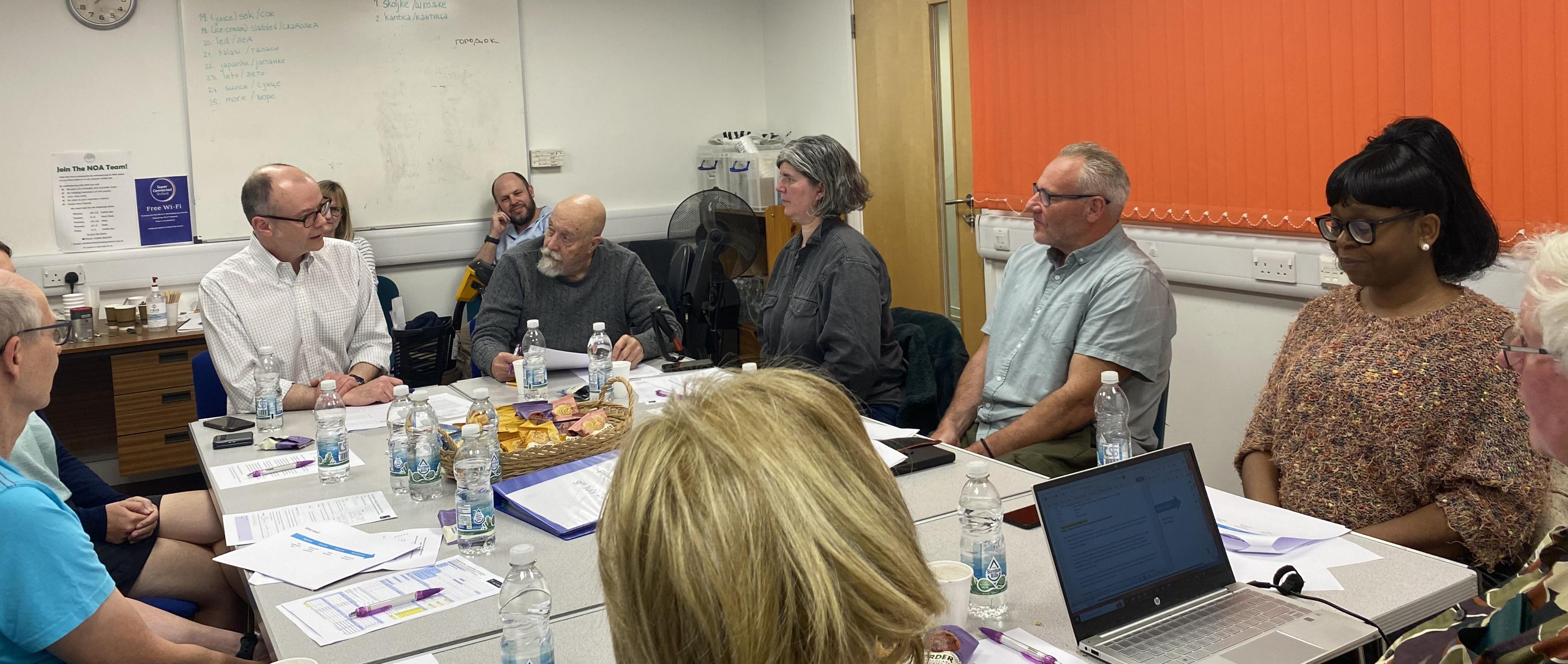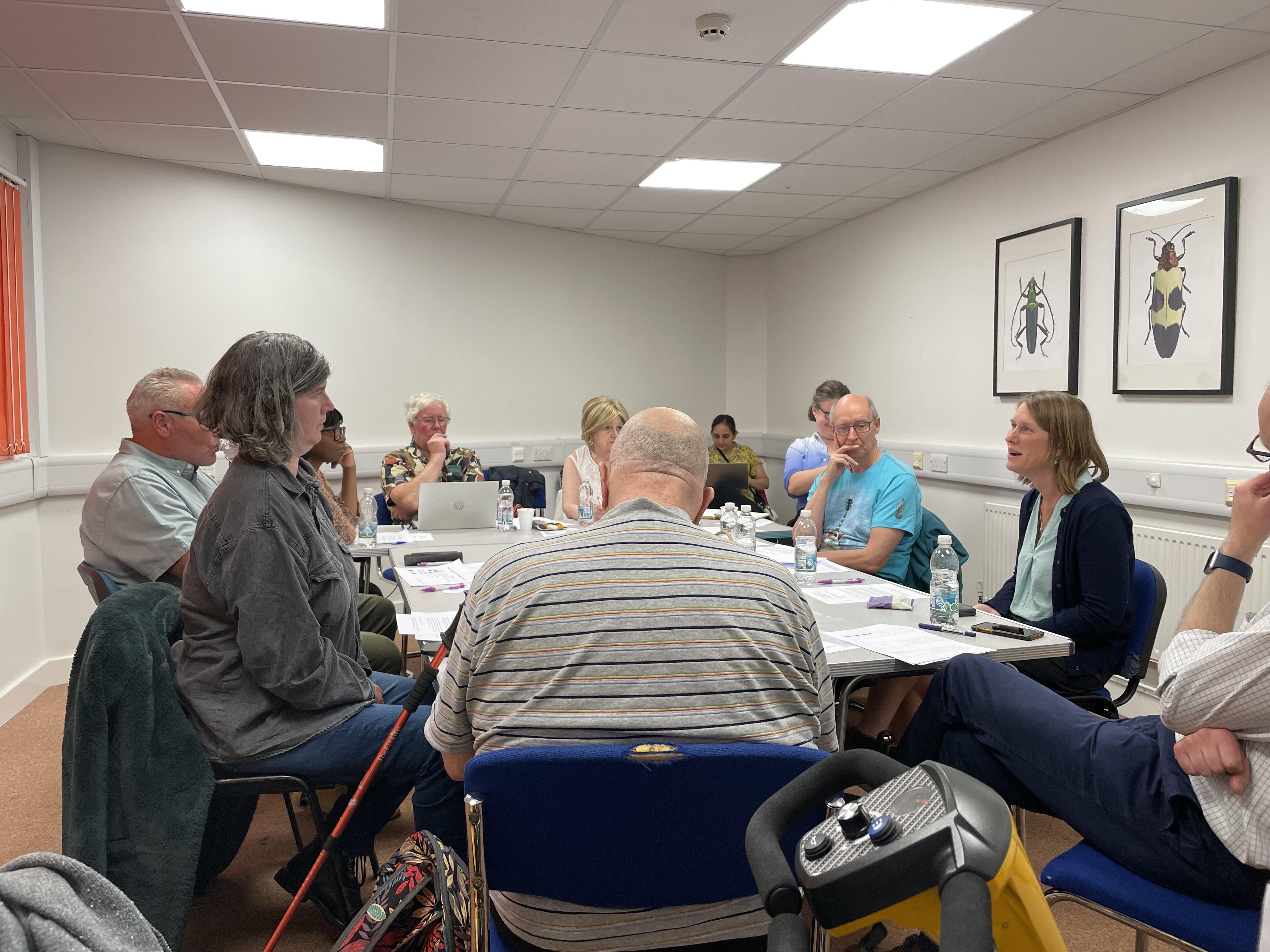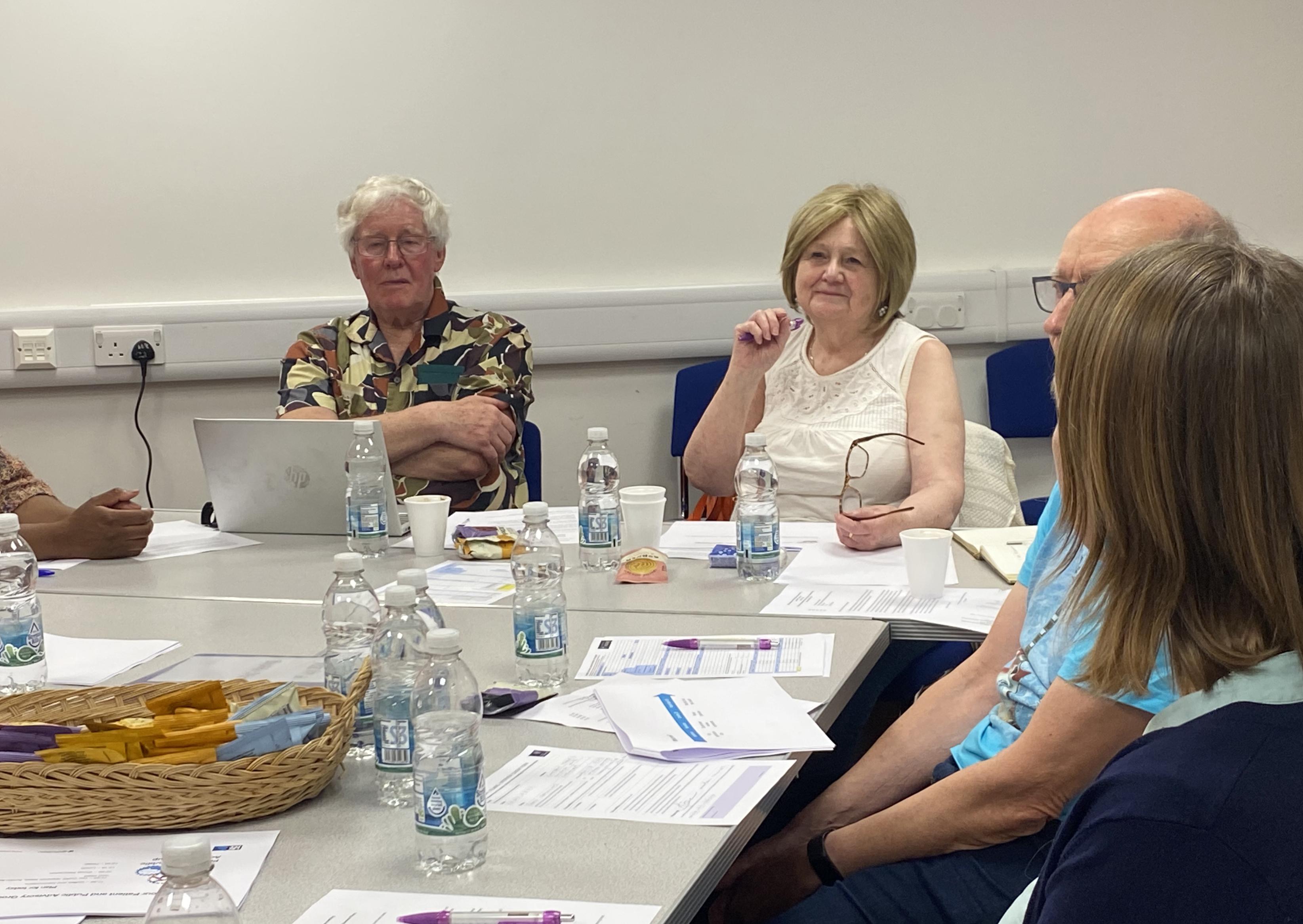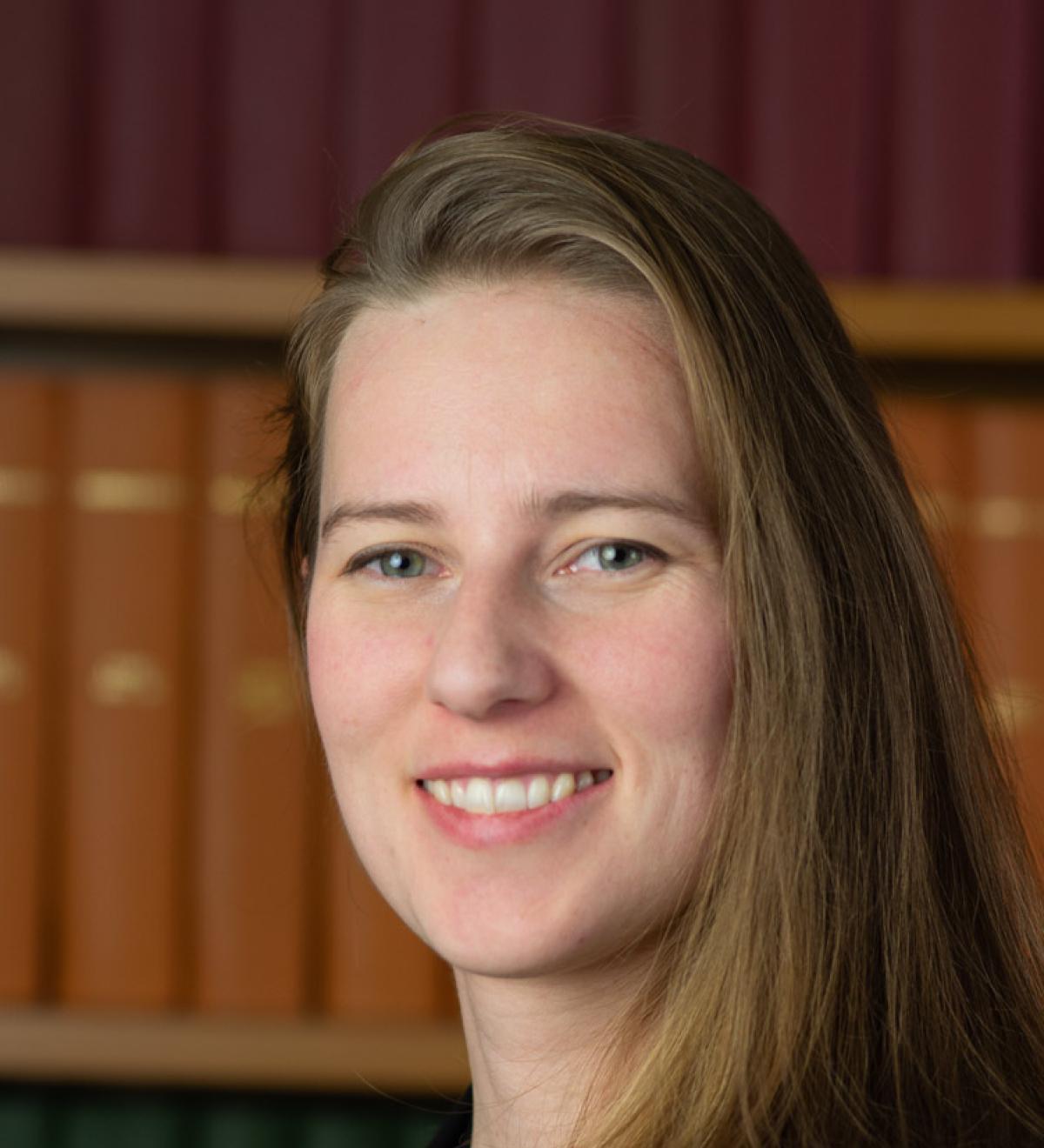
Our congratulations go to Unit D.Phil. student Demi Brizee for successfully defending her doctoral thesis, entitled “On superficial interneurons of dorsal hippocampal CA1”, in her viva voce examination on 11th February 2025.
Demi’s viva examiners were Assistant Professor Tristan Geiller (Yale School of Medicine, USA) and Professor Colin Akerman (University of Oxford).
Demi was supervised in the Unit by Professor David Dupret, Dr Vitor Lopes dos Santos, and Professor Peter Magill.
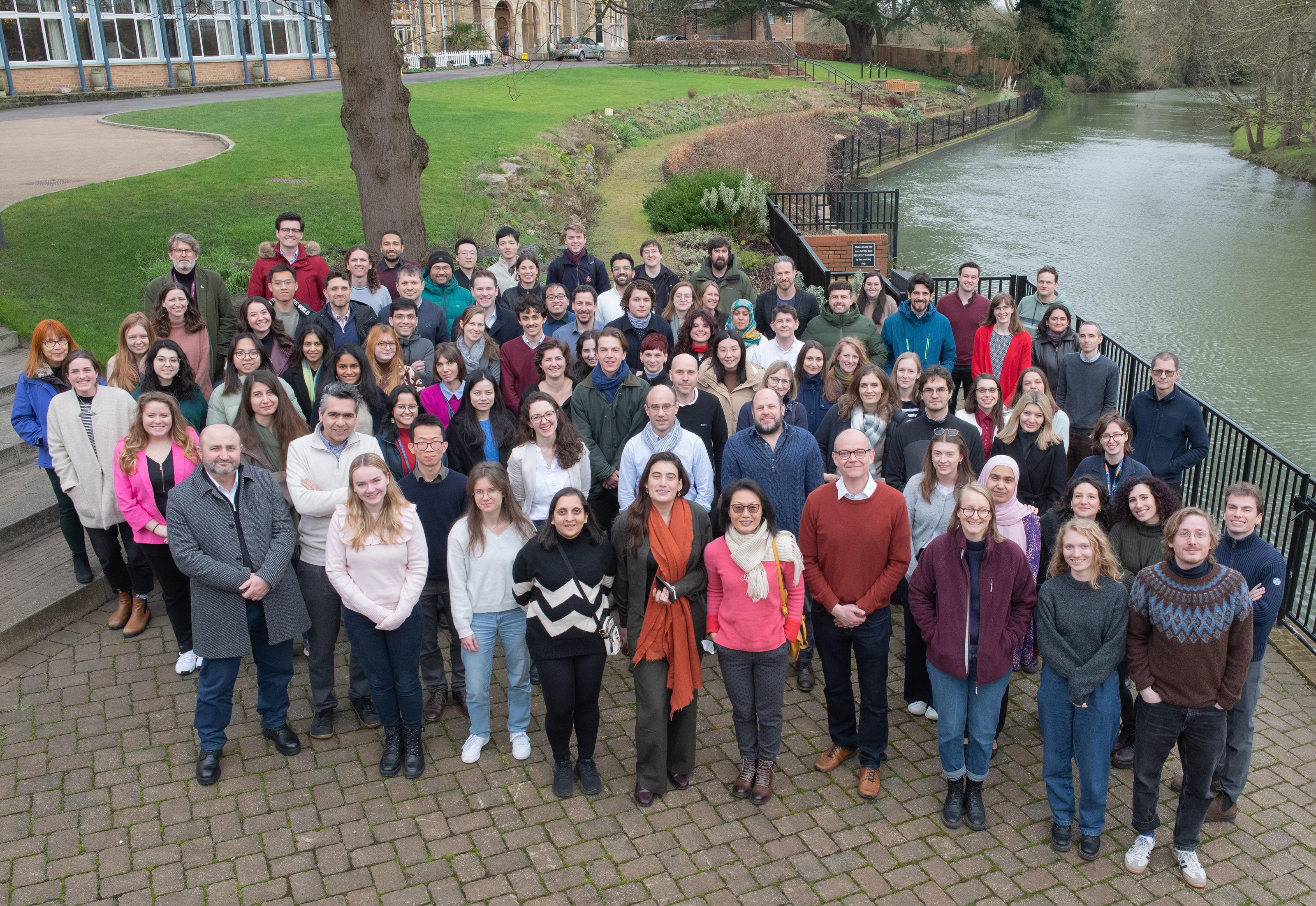
Attendees at the MRC BNDU’s Science Day in Winter 2025.
The Unit held its nineteenth Science Day on Friday 7th February 2025. Unpublished work and future research projects were the centre of conversation, and Unit members and visitors eagerly took the chance to give the informal feedback that is essential for fostering collaborative working across S.T.E.M.M. disciplines.
There were 8 short talks delivered by the Unit’s early-career researchers. Attendees were also treated to special lectures from Unit alumni Dr Paul Dodson (University of Bristol), Dr Stéphanie Trouche (University of Montpellier, France), Dr Hayriye Cagnan (Imperial College London), and Dr Abbey Holt Becker (Medtronic, USA).
Unit Director Professor Peter Magill commented: “It was exciting to see how the work of the Unit’s early-career researchers continues to deliver critical new insights into brain function and dysfunction. As the Unit approaches its 10th anniversary, this Science Day provided a great opportunity to reflect on our collective achievements since the Unit was created. Markers of the Unit’s success are many and varied, straddling scientific discoveries, translational innovation, research culture, and cross-sector capacity building. Our alumni and current membership are well positioned to ensure the Unit has a lasting legacy of excellence.”
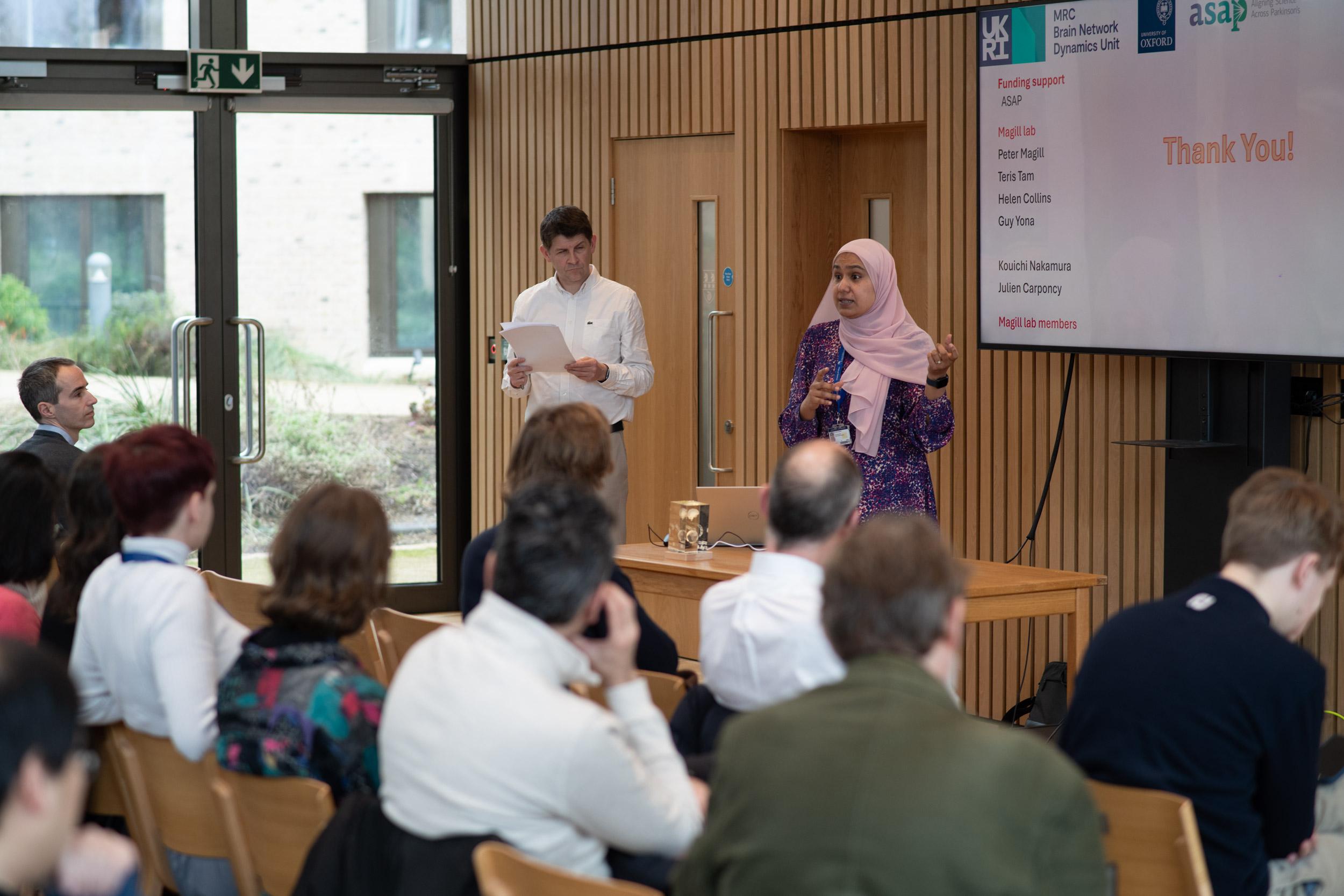
Unit postdoctoral researcher Rasha Elghaba showcases her ongoing work on neuromodulator signalling in the striatum during behaviour.

Unit alumnus Dr Paul Dodson presents some of the latest research from his group based at the University of Bristol.
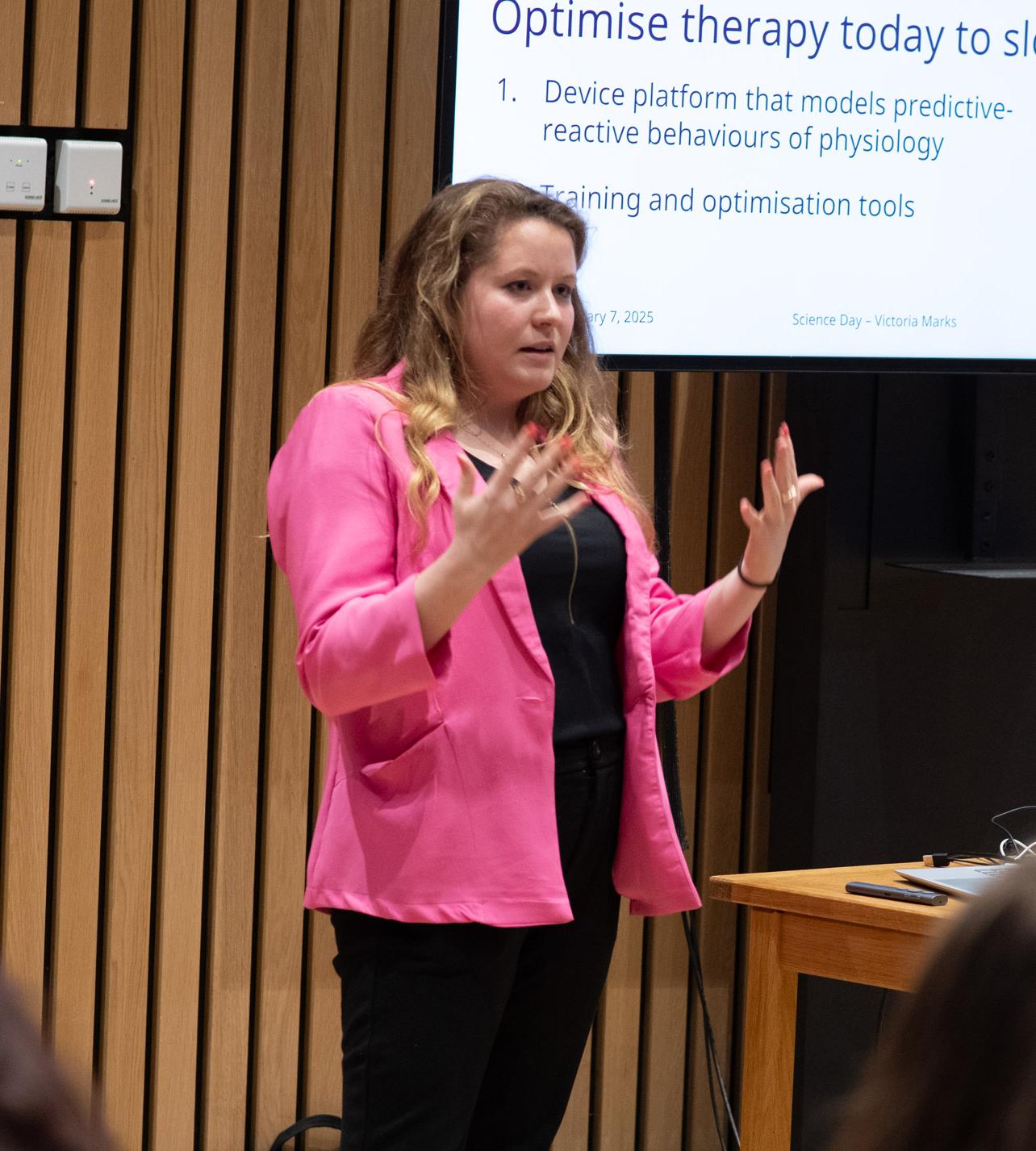
Unit postdoctoral researcher Tory Marks discusses advanced algorithms for controlling brain-stimulation devices.
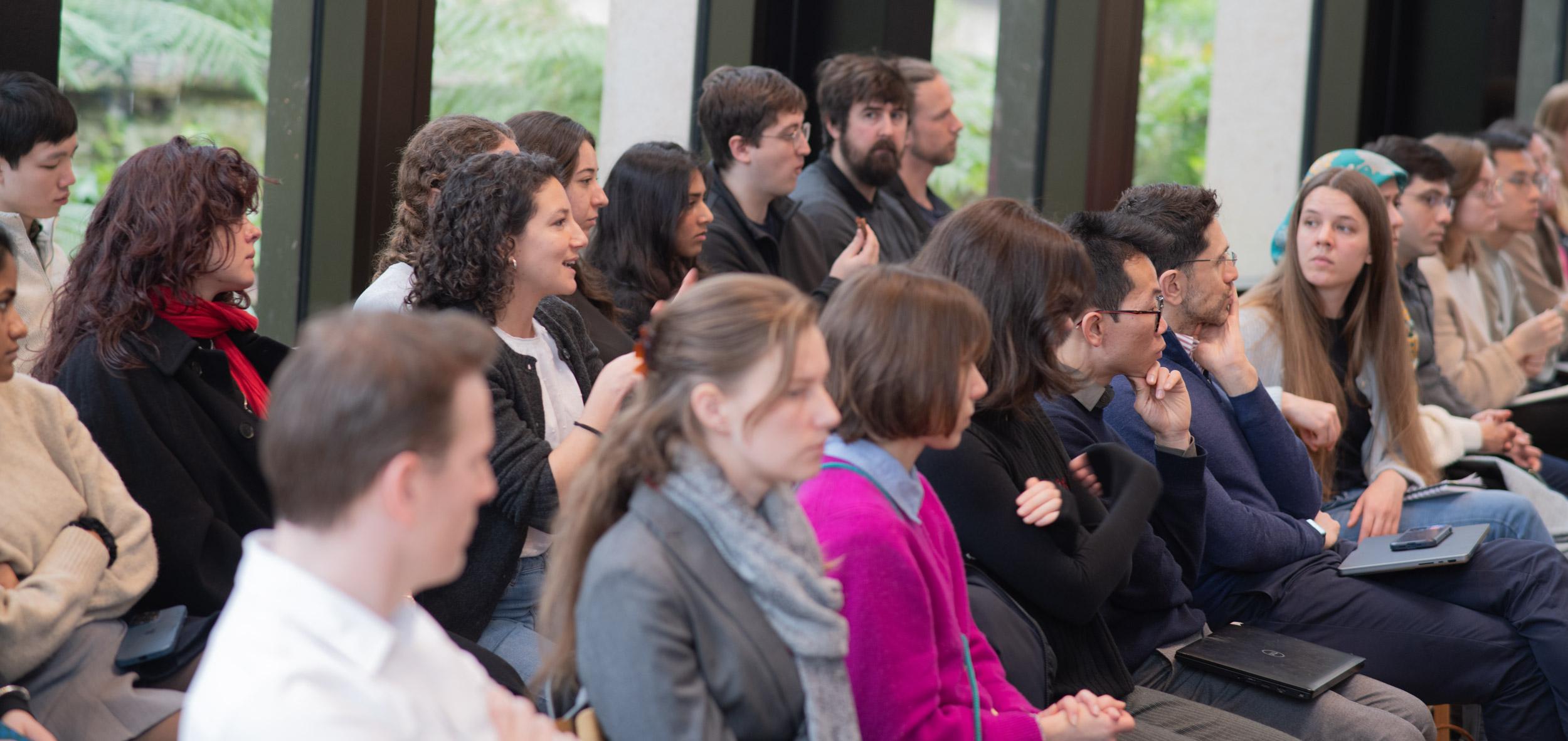
Audience members ask questions at Winter Science Day 2025.
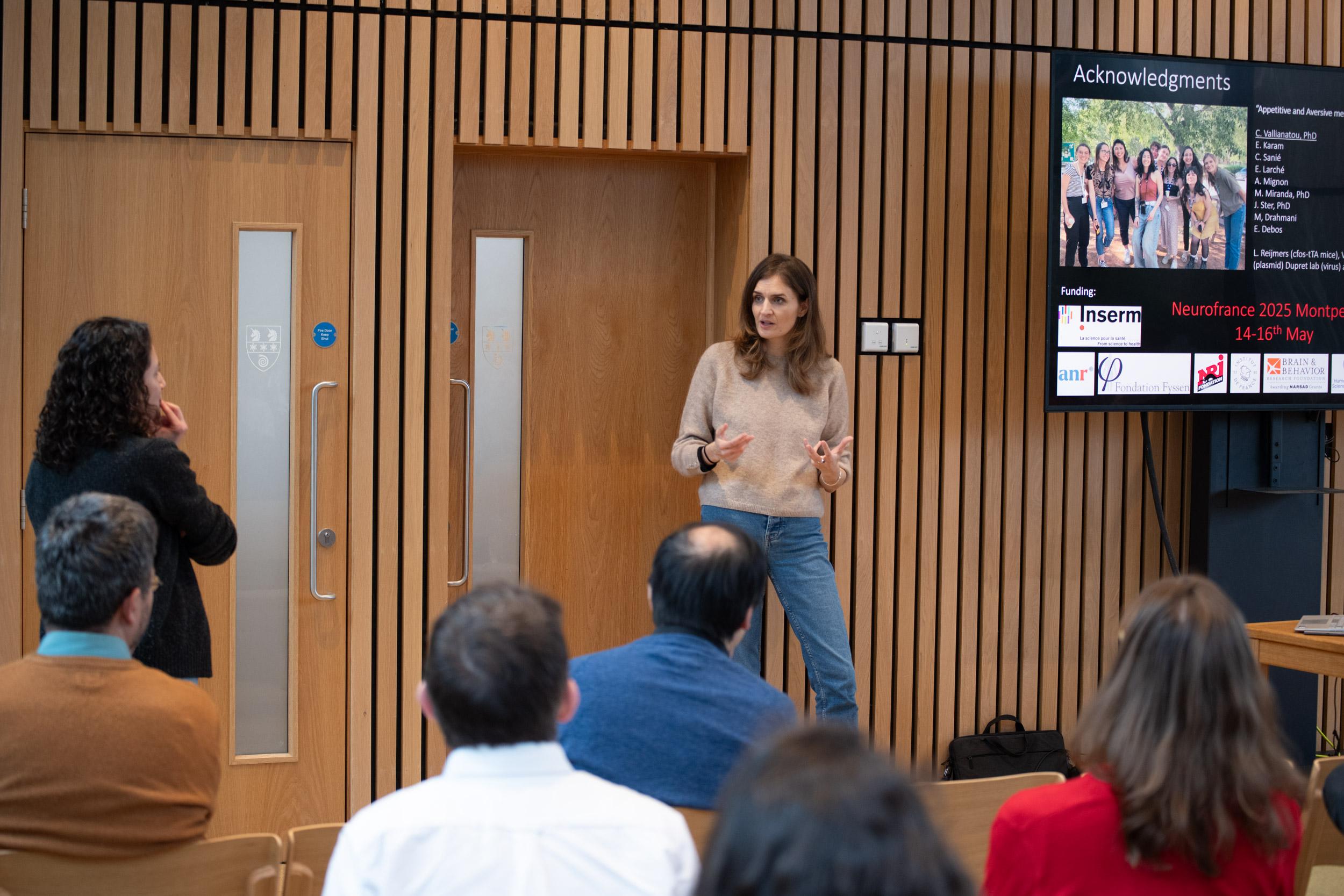
Unit alumna Dr Stéphanie Trouche presents some of the latest research from her group based at the University of Montpellier.
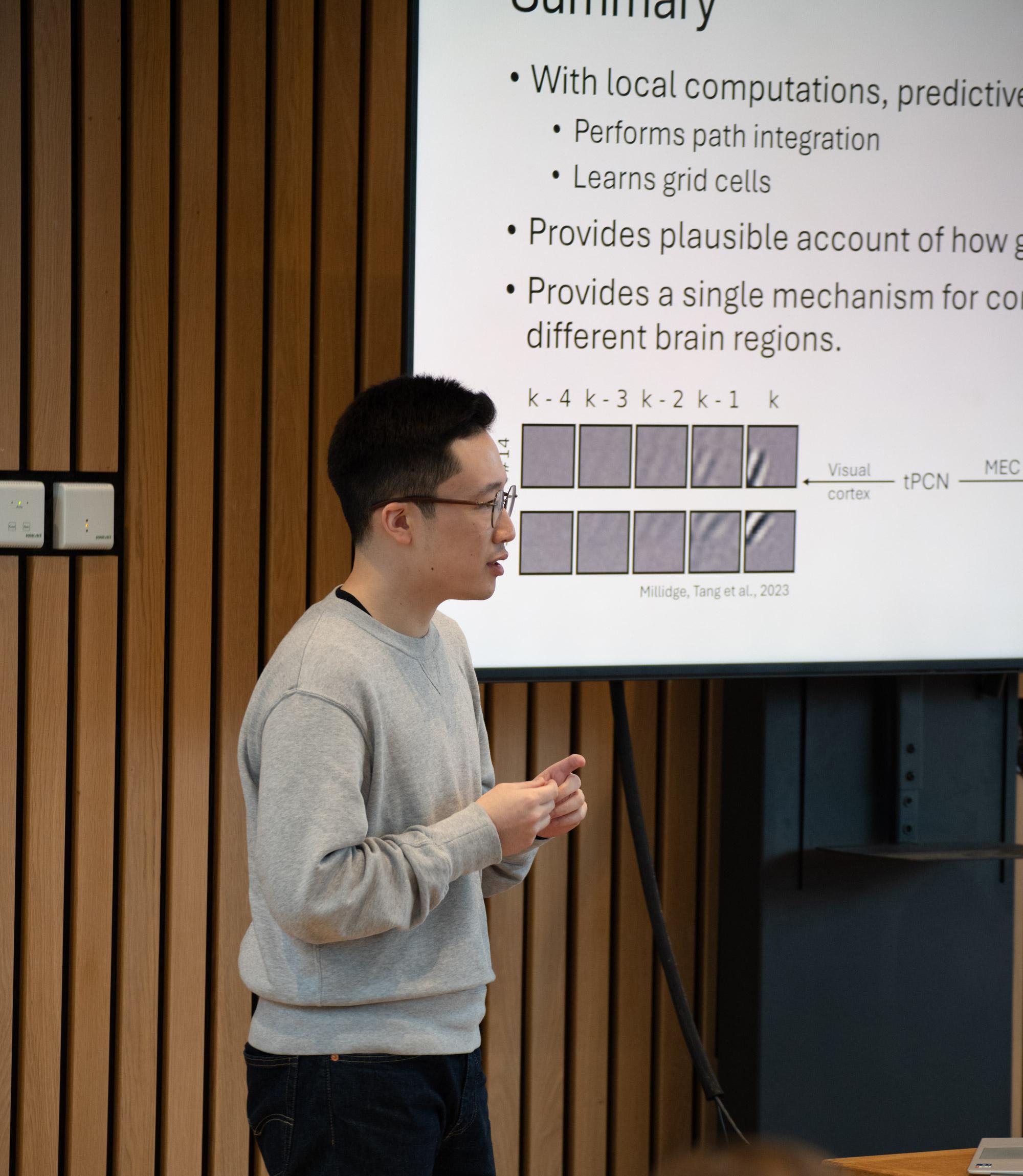
Unit student Mufeng Tang discusses new facets of predictive coding in the brain.
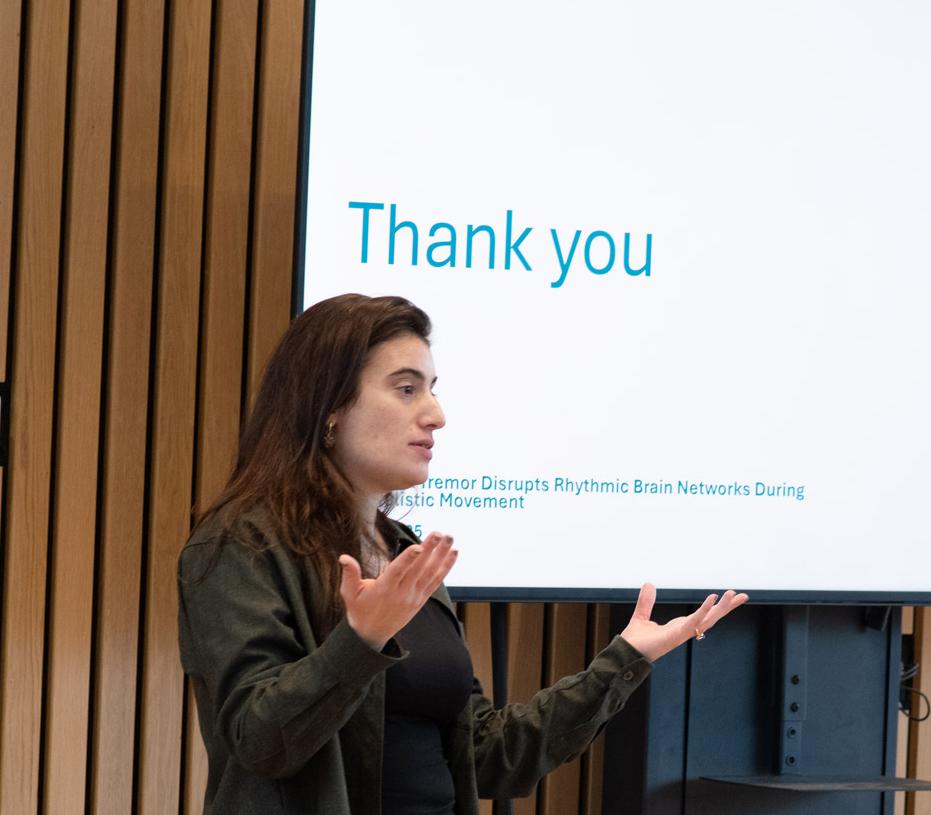
Unit alumna Dr Hayriye Cagnan answers audience questions after presenting some of the latest research from her group based at Imperial College London.
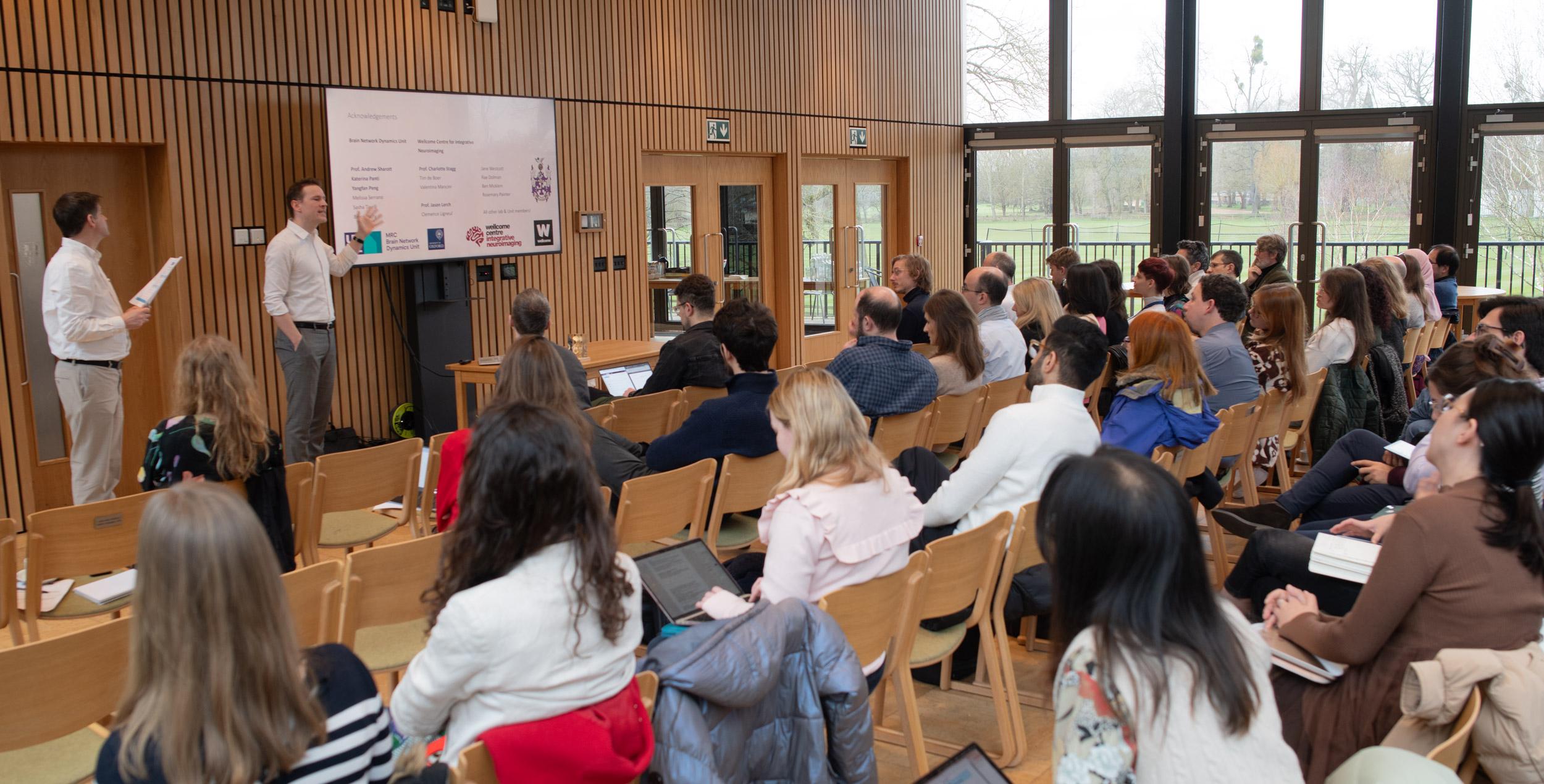
Unit postdoctoral researcher Jeffrey Stedehouder explains his latest research on altered neuronal activity in models of psychiatric disorders.
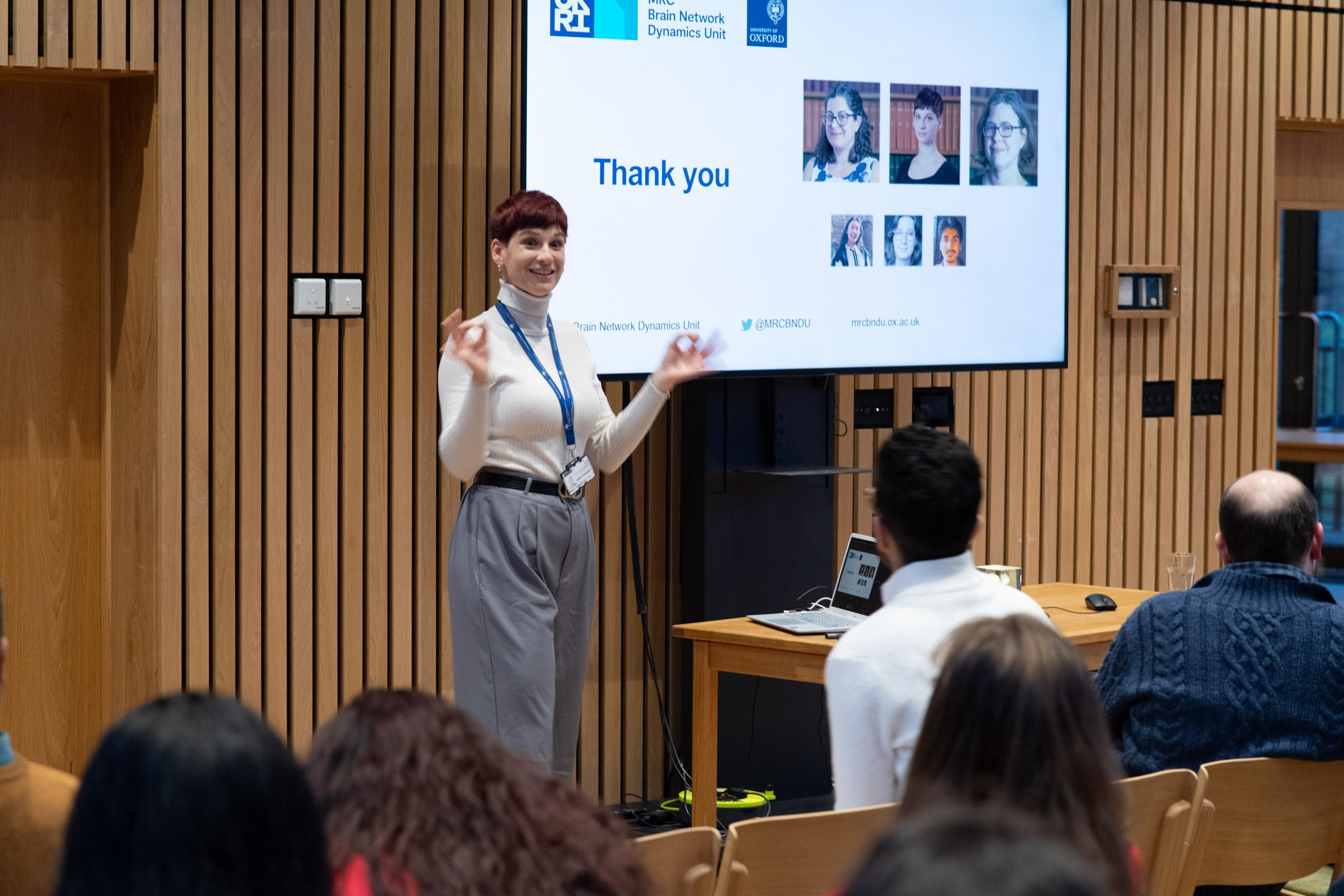
Unit student Camille Lasbareilles explores the neurophysiological basis of neuronal oscillations in human motor cortex.
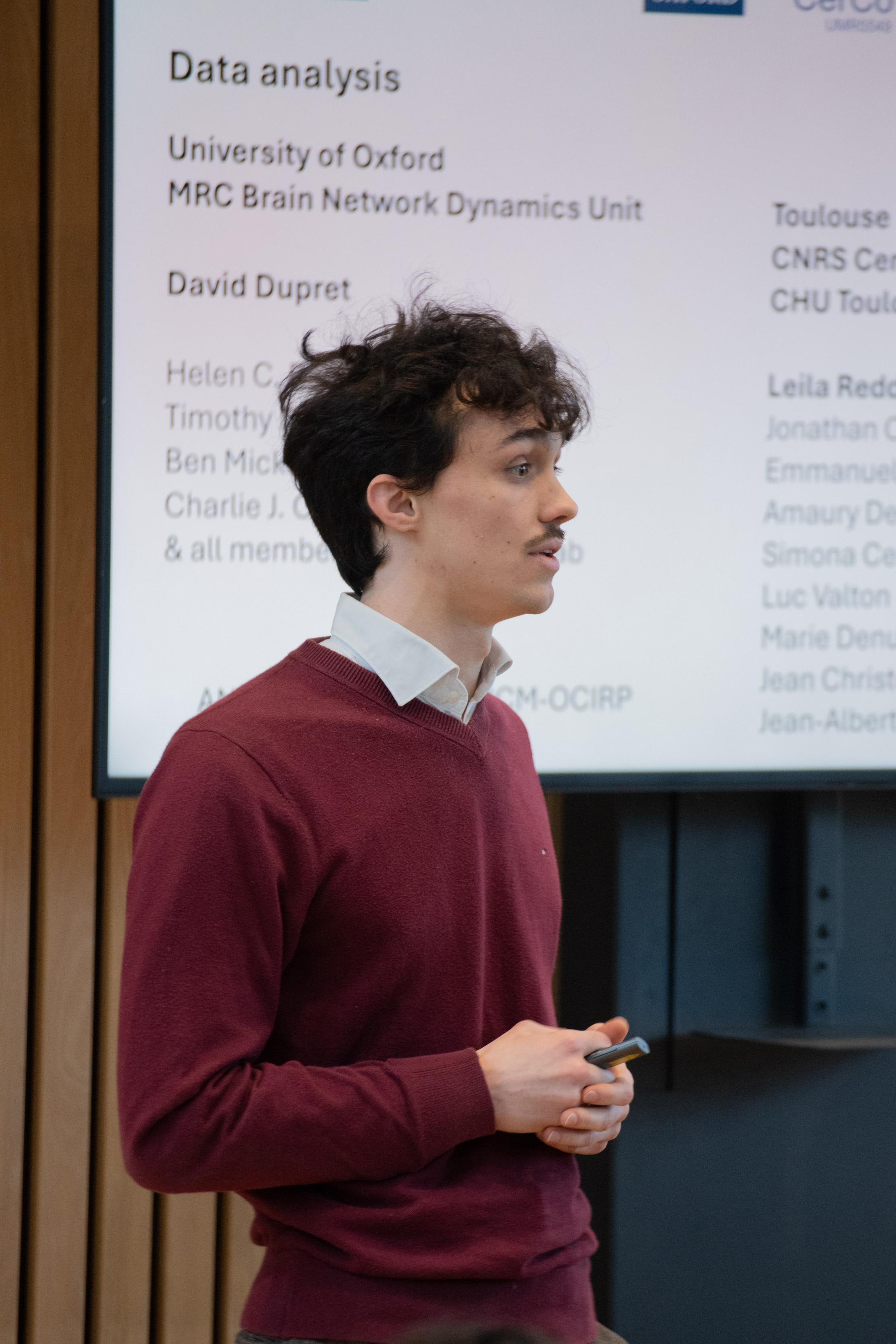
Unit student Adrien Causse compares neural dynamics in human and rodent brains.
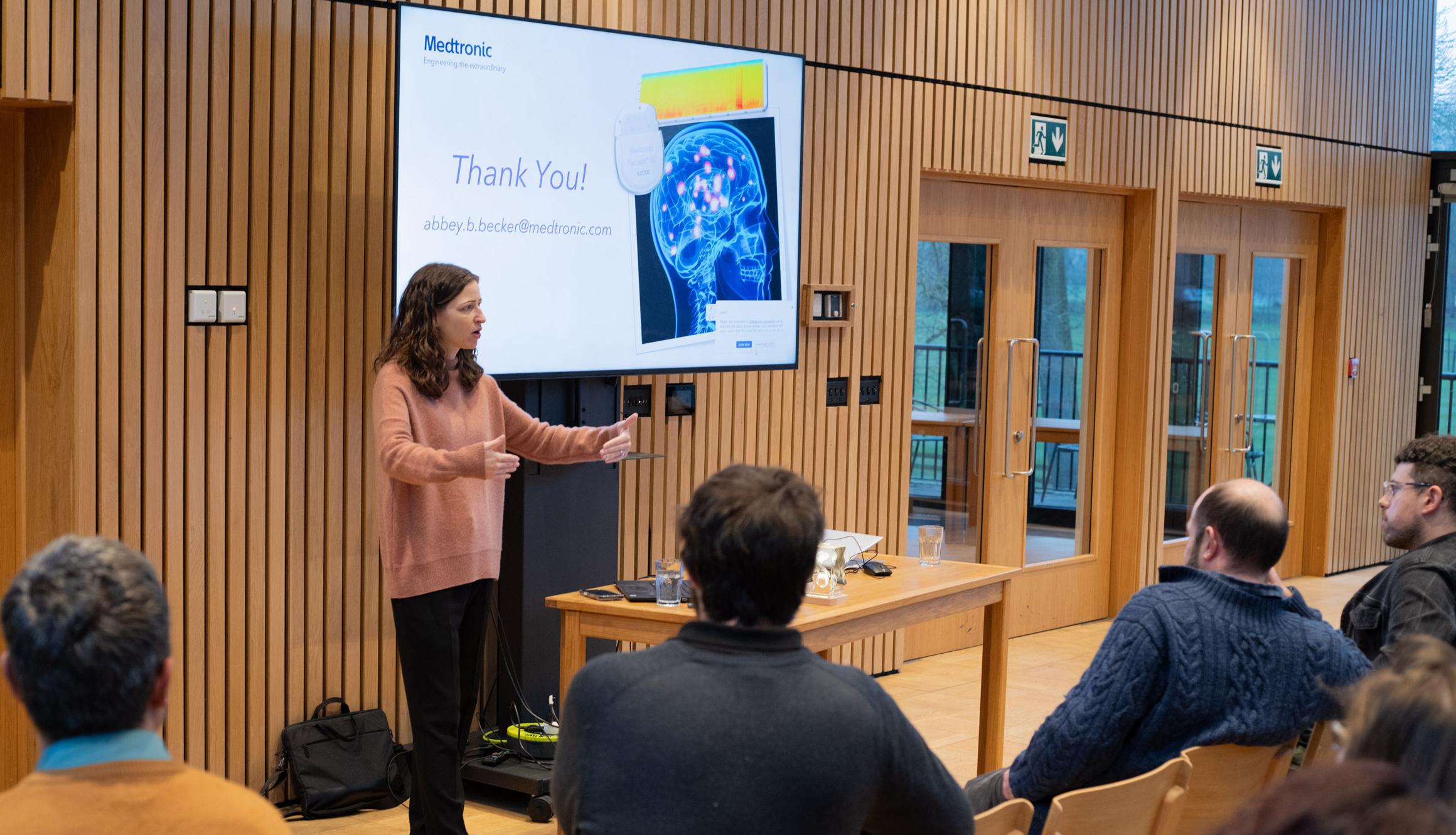
Unit alumna Dr Abbey Holt Becker answers audience questions after presenting a historical overview of research on brain sensing technology.
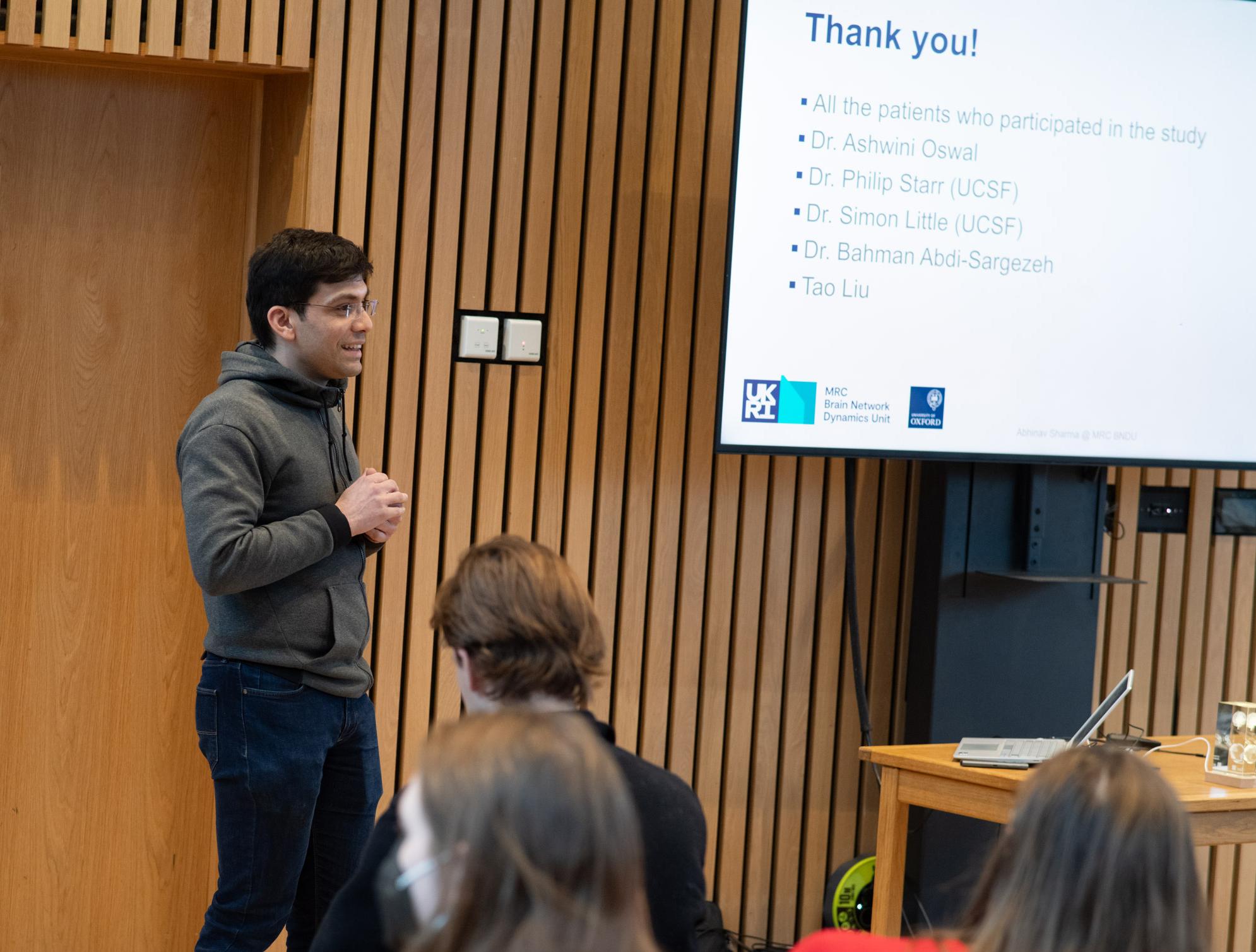
Unit postdoctoral researcher Abhinav Sharma highlights how mathematical modelling can be used to unravel brain circuit dynamics in Parkinson's.
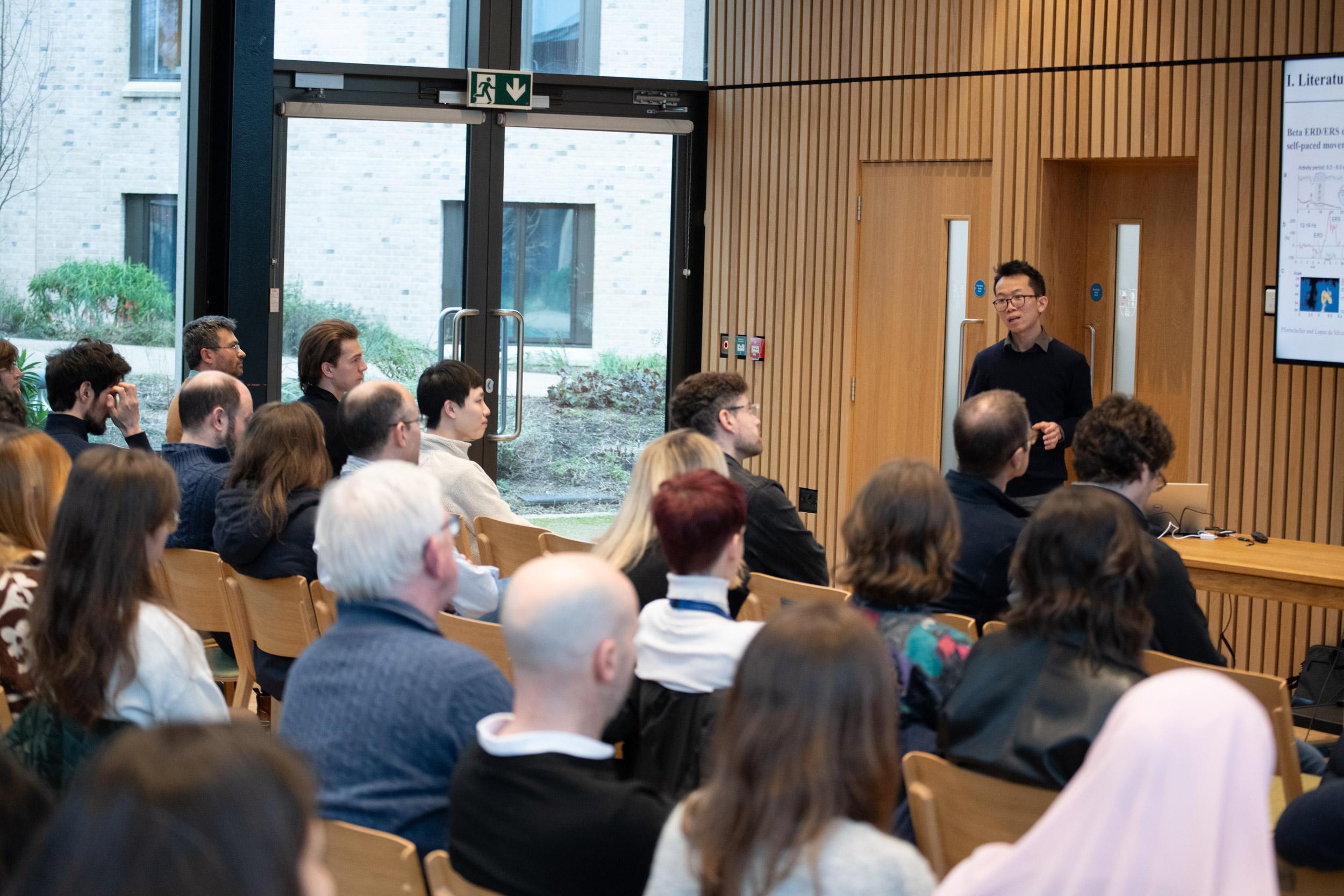
Unit postdoctoral researcher Shenghong He discusses how non-invasive magnetic brain stimulation can reveal the role of specialised brain activity in movement preparation.
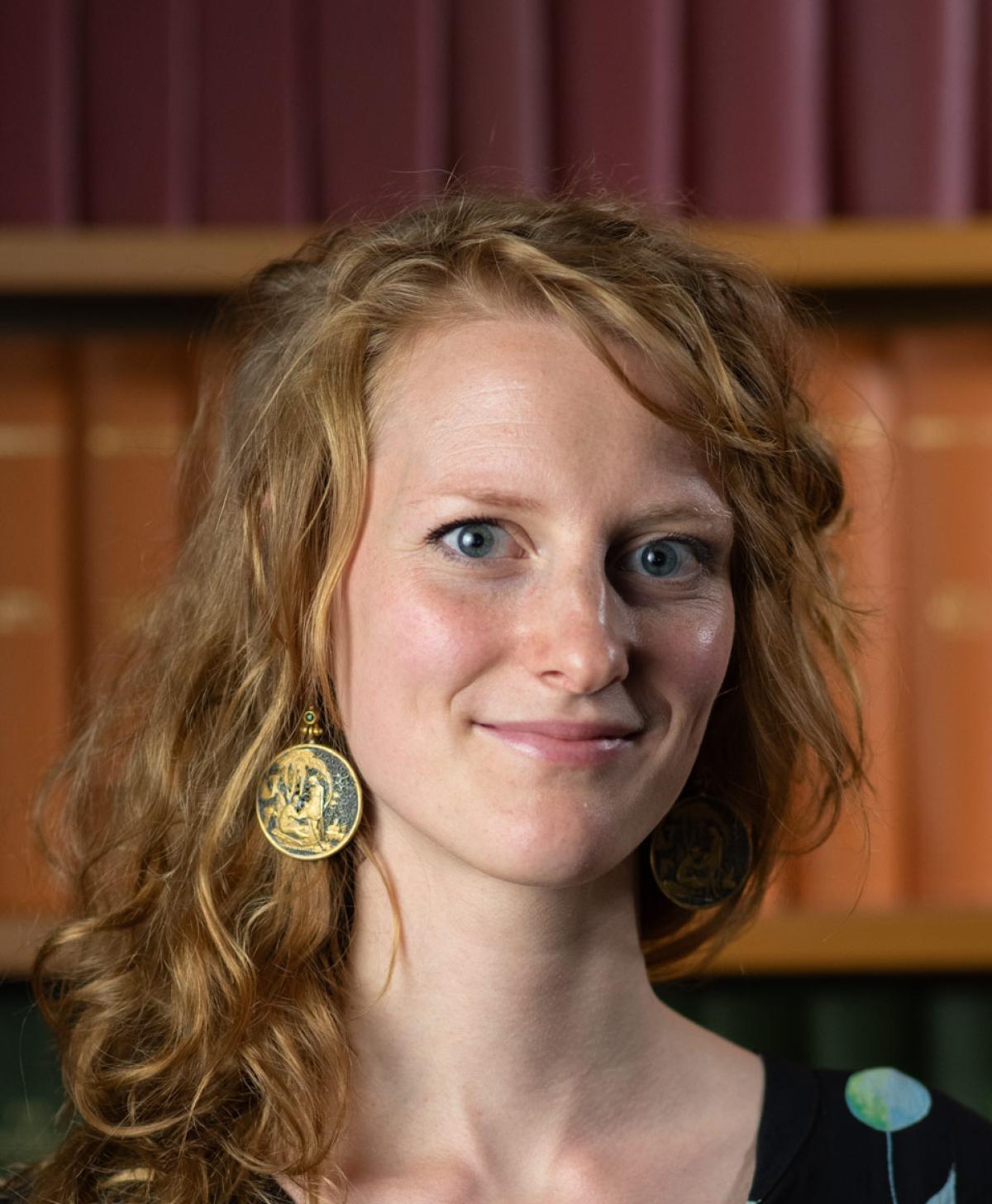
Many congratulations to Unit postdoctoral researcher Dr Xenia Grande on being awarded a Walter Benjamin Postdoctoral Fellowship by the German Research Foundation (DFG).
This highly competitive Fellowship will enable Xenia to pursue an innovative research project, enhancing her technical skills, advancing thematic development, and increasing her scientific independence. Xenia will conduct her Fellowship research as part of the Barron Group in the Unit and will also collaborate with Professor Jill O’Reilly and team at the Department of Experimental Psychology, University of Oxford.
Xenia’s research project aims to provide new insights into the physiological and anatomical mechanisms in the human brain that support the construction of coherent narratives from distinct events. Xenia will focus her work on entorhinal-hippocampal circuits in the brain, investigating them using a cross-scale approach that integrates data from non-invasive 7T functional Magnetic Resonance Imaging with data from intracranial electrophysiological recordings made in epilepsy patients. Xenia anticipates her research will advance understanding of how humans extract structure and comprehension from the external world and that it will lay the groundwork for assessing complex human cognition from a mechanistic perspective in both health and disease.
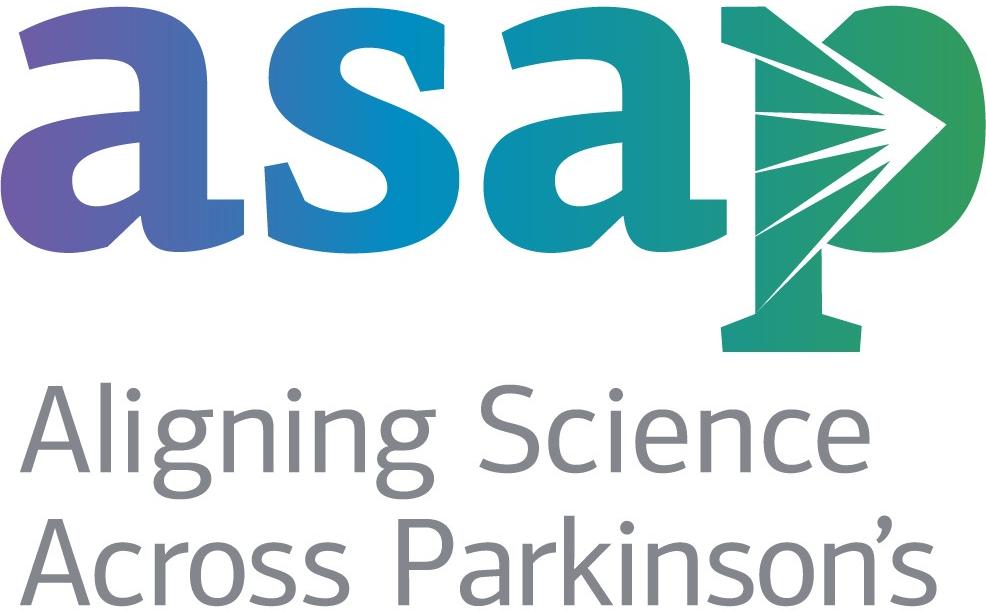
We are delighted to announce that the MRC Brain Network Dynamics Unit has received competitive supplementary funding from the Aligning Science Across Parkinson’s (ASAP) initiative to continue a substantial multi-year research collaboration that aims to advance the understanding of brain cell and circuit dysfunction in Parkinson’s.
The extended international collaboration builds on the MRC Unit’s fruitful interactions with colleagues at the University of Oxford, the University of Boston, USA, the Karolinska Institutet, Sweden, the University of Peking, China, and Stanford University, USA, as well as with other members of ASAP’s Collaborative Research Network. To support this collaboration, which started in 2021, the MRC Unit will leverage its leading expertise in high-resolution in vivo phenotyping of rodent models of Parkinson’s.
ASAP is a coordinated research initiative to advance targeted basic research for Parkinson’s disease. Its mission is to accelerate the pace of discovery and inform the path to a cure through collaboration, research-enabling resources, and data sharing. The Michael J. Fox Foundation for Parkinson’s Research is ASAP’s implementation partner and issued the supplemental grant.
Professor Peter Magill, who will continue to lead the Unit’s contribution to the collaboration, commented, “This presents another exciting opportunity to enhance the Unit’s strong portfolio of discovery and translational neuroscience research. We look forward to progressing our collaborative effort to define why, how and when brain network dynamics go awry in Parkinson’s.”
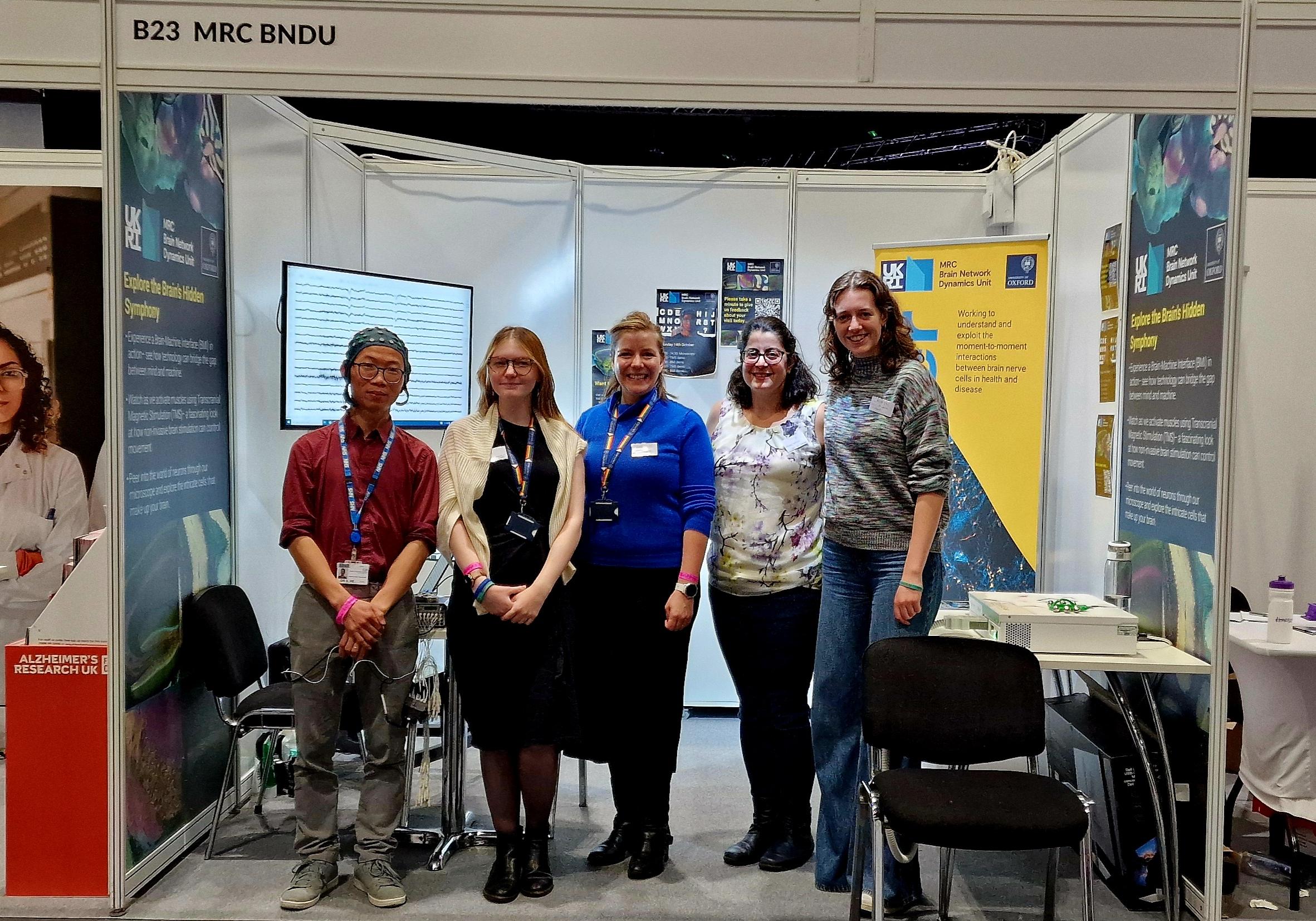
And that’s a wrap! Unit researchers on the MRC BNDU stand after a very busy Schools’ Day at New Scientist Live. From left to right: Shenghong He, Jennifer Blackmore, Natalie Doig, Polytimi Frangou, and Lauryn Foster.
Unit researchers recently brought cutting-edge neuroscience to the public through interactive exhibits and live demonstrations at this year’s New Scientist Live event, held in London from 12th to 14th October. New Scientist Live is a huge festival of ideas and discoveries, showcasing the latest in science and technology, with an attendance of over 25,000 people. Visitors to the MRC BNDU stand were invited to immerse themselves in the latest advances in neuroscience, exploring how researchers can decode brain signals to understand movement, memory, and early indicators of neurological disorders.
The Unit stand was a hub of hands-on activities, offering visitors a chance to see a brain-machine interface (BMI) in action and to witness how these innovative technologies may transform communication and interaction. Visitors were talked through each activity by some of the Unit’s early-career researchers. Postdoctoral researcher Shenghong He demonstrated the potential of BMI by spelling words on a screen using signals from his brain, recorded by an electroencephalogram (EEG) cap. This demonstration captivated audiences and led to discussions about how we can utilise brain waves in the future.
Another popular activity at the Unit stand was the chance to look through a fluorescence microscope and observe dopamine cells in the brain. This special experience allowed visitors to see firsthand the cellular structures that play a crucial role in the brain’s movement and reward circuits, sparking insightful conversations about how studying these cells is essential to understanding complex brain functions and changes in brain conditions such as Parkinson’s.
Visitors were also introduced to other innovative research methods, including transcranial magnetic stimulation (TMS), a non-invasive technique that enables scientists to stimulate nerve cells and cause responses like muscle twitches. Young attendees were especially delighted to use the TMS machine to stimulate the researchers’ muscles!
Visitor feedback from the event reflected the enthusiasm and curiosity sparked by the MRC BNDU stand. When asked to describe their visit in one word, feedback was overwhelmingly positive: attendees called the experience “informative,” “fascinating,” “awe-inspiring,” and “super interesting.” The Unit team’s interactions with attendees further solidified the experience as a highlight, with one visitor remarking on the “amazing experience” and “wonderful presenters.”
The third day of New Scientist Live is a dedicated Schools’ Day with an attendance of 7,500 students. Pupils visiting the MRC BNDU stand were able to discuss not only the research carried out at the Unit, but also talk with postdoctoral staff and students about careers in STEM. Following this, 77% of respondents said that they “would be more likely to consider a career as a brain researcher.”
Natalie Doig, Co-Chair of the BNDU Public Engagement Committee, reflected, “This event offered a valuable opportunity for Unit researchers to connect with the public, engaging a diverse audience in meaningful discussions about brain research and future treatments. Ultimately, we hope to inspire the next generation of neuroscientists! A massive thank you to all Unit members involved.”
Come and explore the brain’s hidden symphony! Set-up of the MRC BNDU Stand at New Scientist Live 2024.
Unit researcher Polytimi Frangou and student Lauryn Foster demonstrate how you can use transcranial magnetic stimulation (TMS) to stimulate the motor cortex get a resulting twitch in the hand.
Unit researcher Shenghong He uses his own brain waves, as recorded with EEG, to show how the signals can change dramatically when he closes his eyes.
Visitors to the stand were invited to watch the Unit’s latest documentary about brain research produced in partnership with Oxford Sparks.
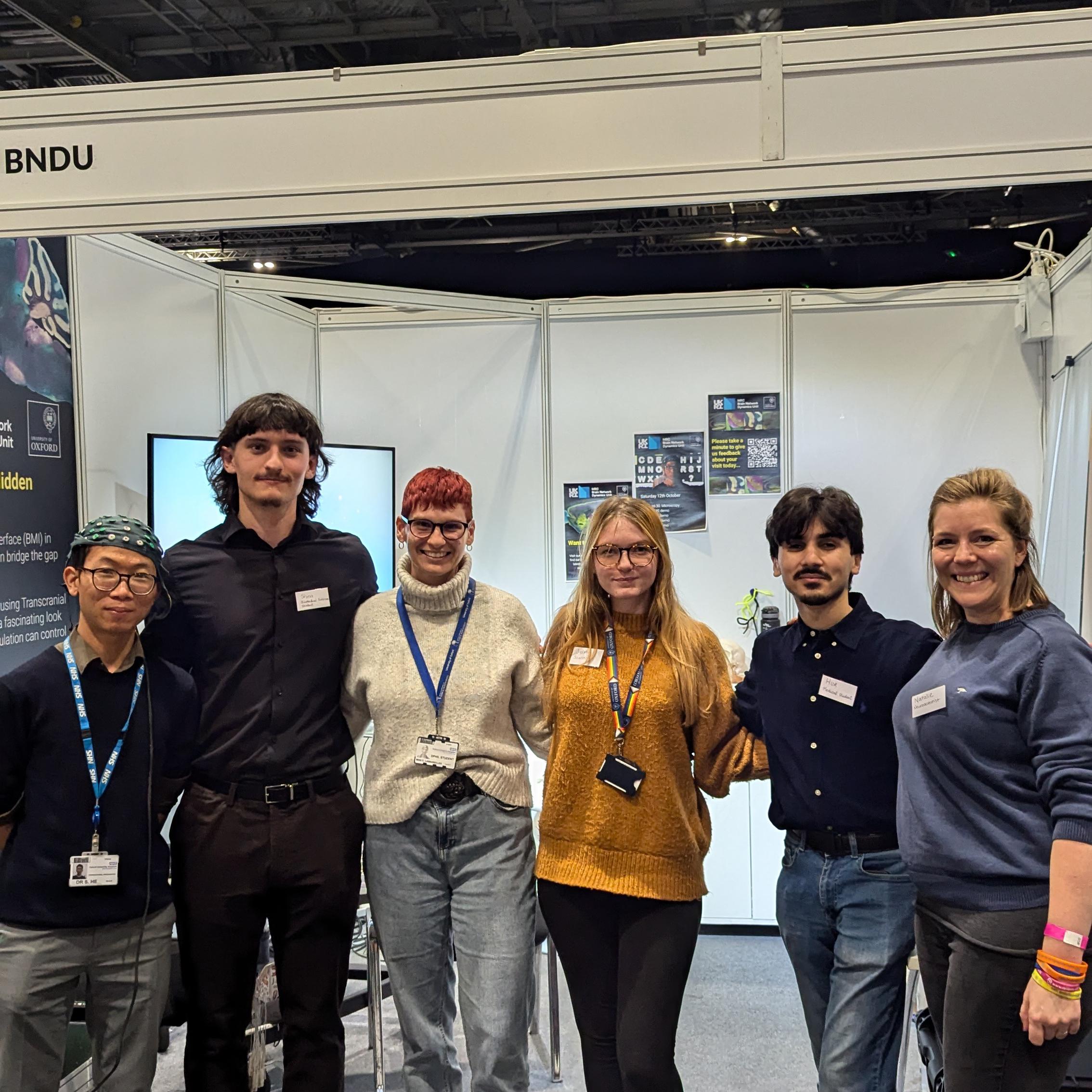
The Unit team of early-career researchers on the first day of New Scientist Live. From left to right: Shenghong He, Shea Heaney, Camille Lasbareilles, Jennifer Blackmore, Hur Shah and Natalie Doig.
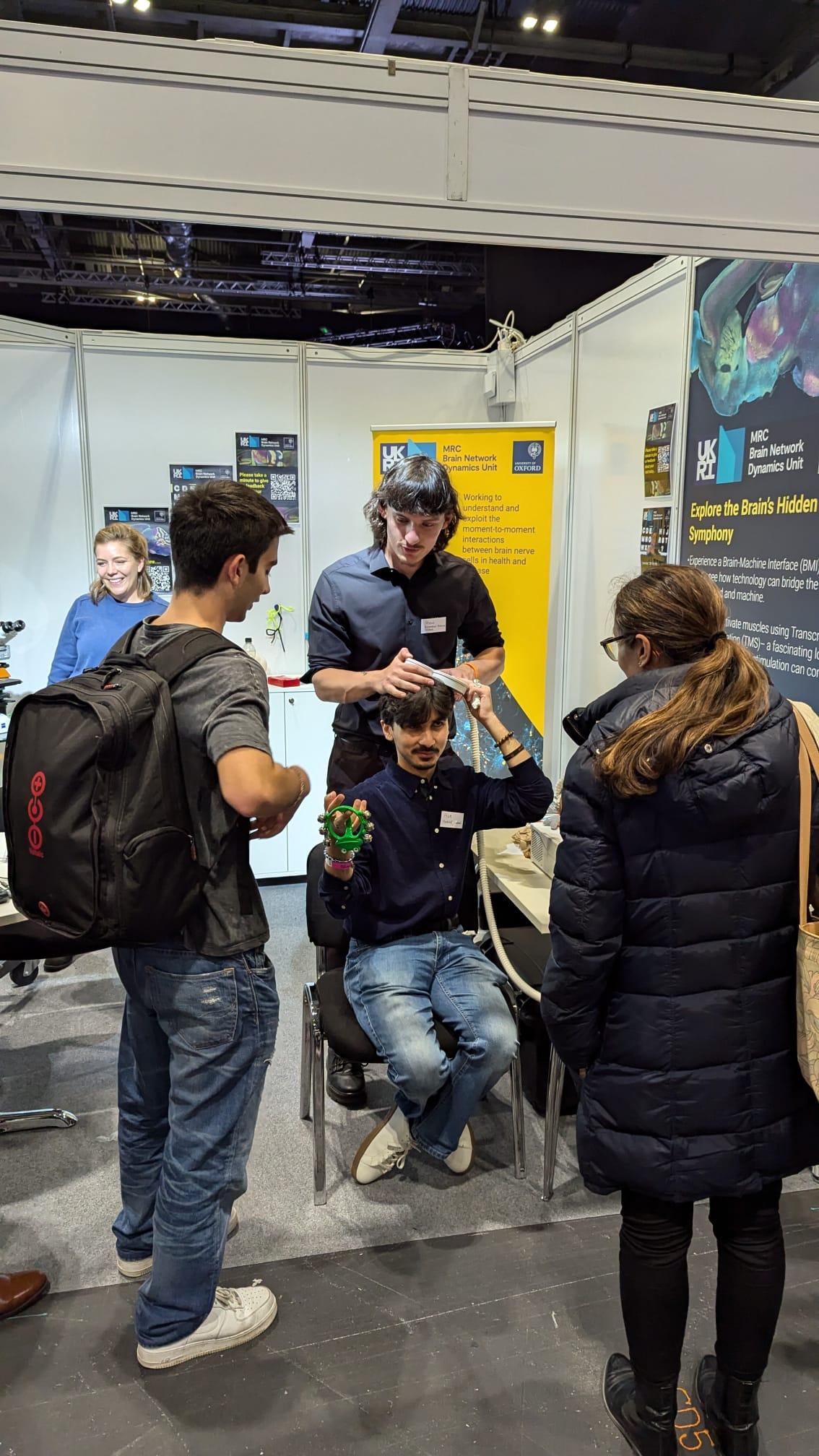
Students Hur Shah and Shea Heaney demonstrate how transcranial magnetic stimulation (TMS) works and potential for treating brain disorders.
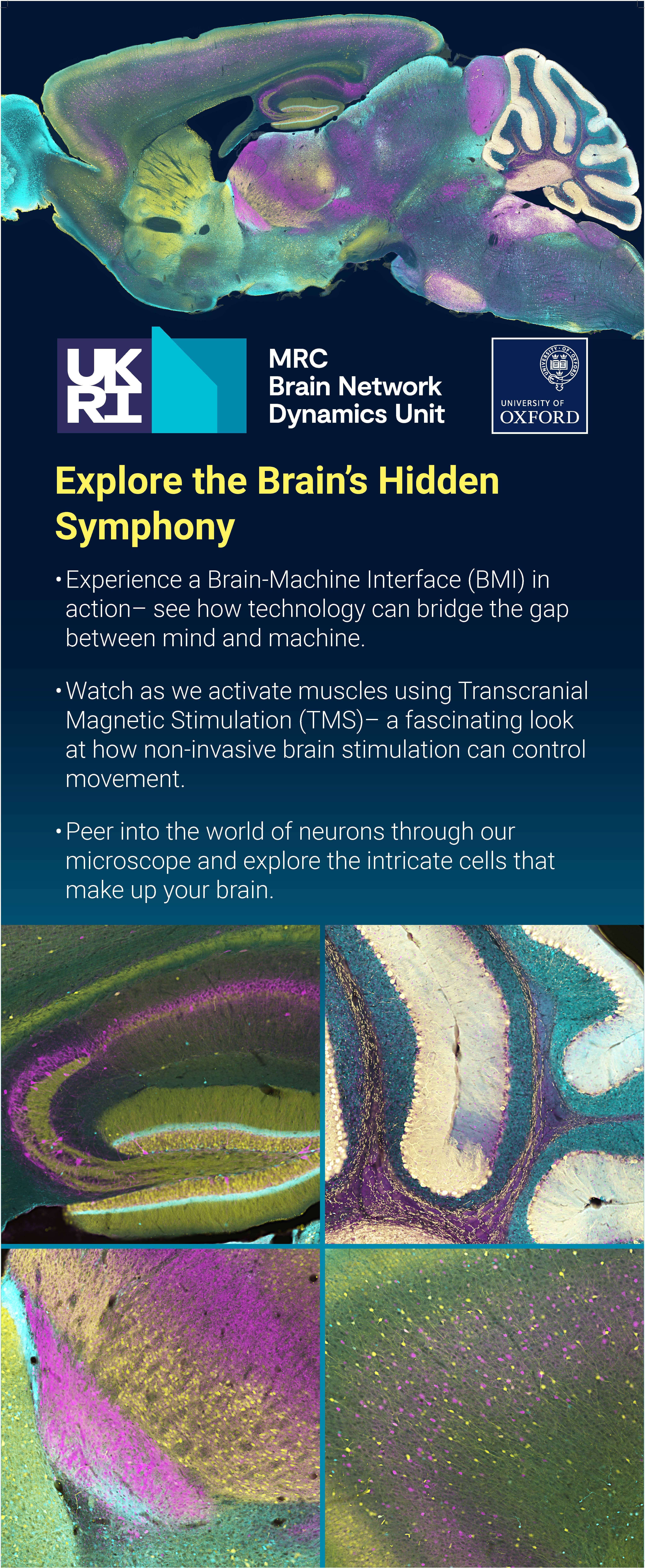
Visitors to the MRC BNDU stand at New Scientist Live were invited to “explore the brain’s hidden symphony” through live demonstrations and interaction with researchers.

Some of the words used to describe visitors’ experience at the MRC BNDU stand.
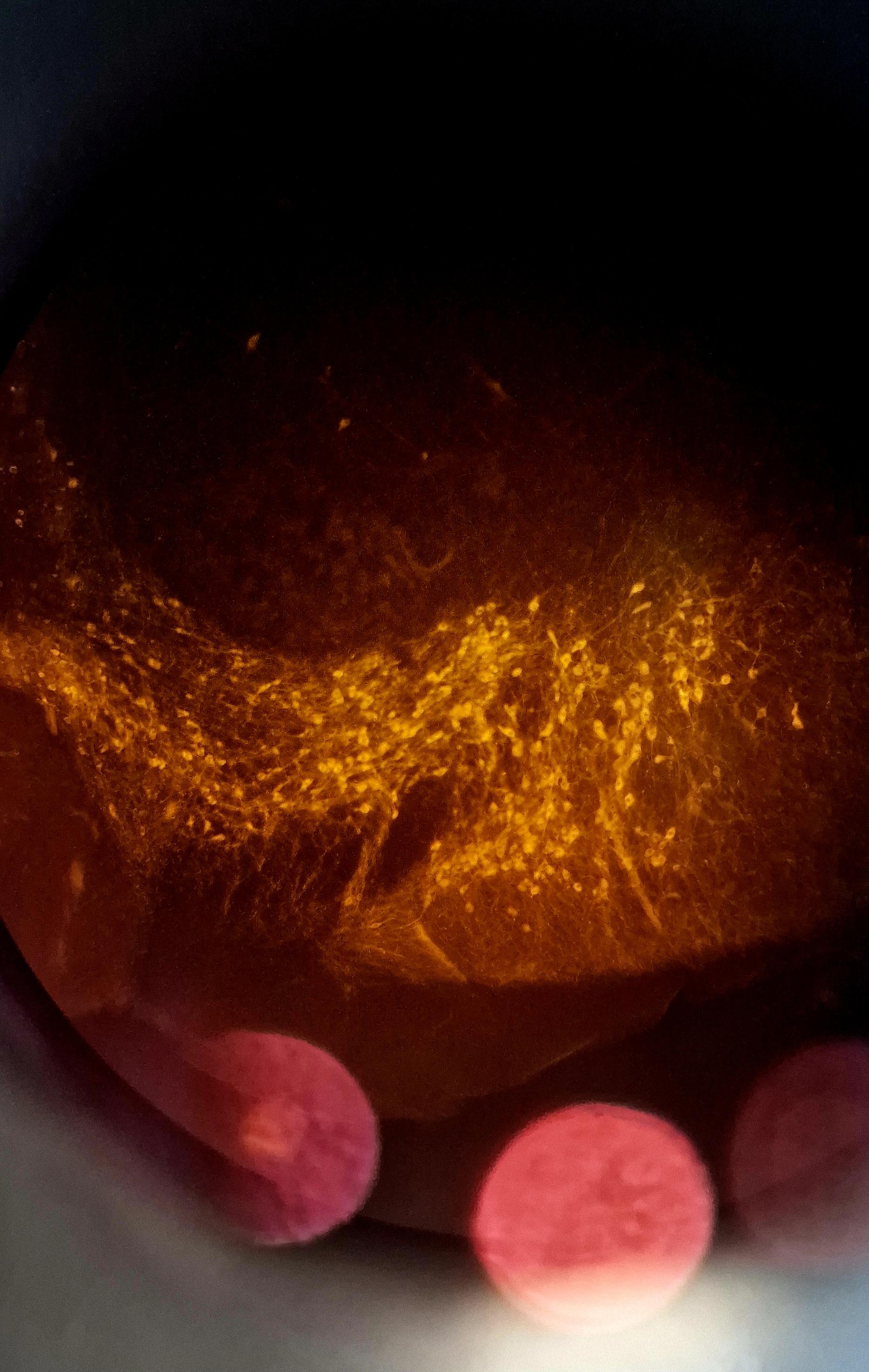
Visitors the MRC BNDU stand had the opportunity to look down a fluorescence microscope and see glowing dopamine neurons.
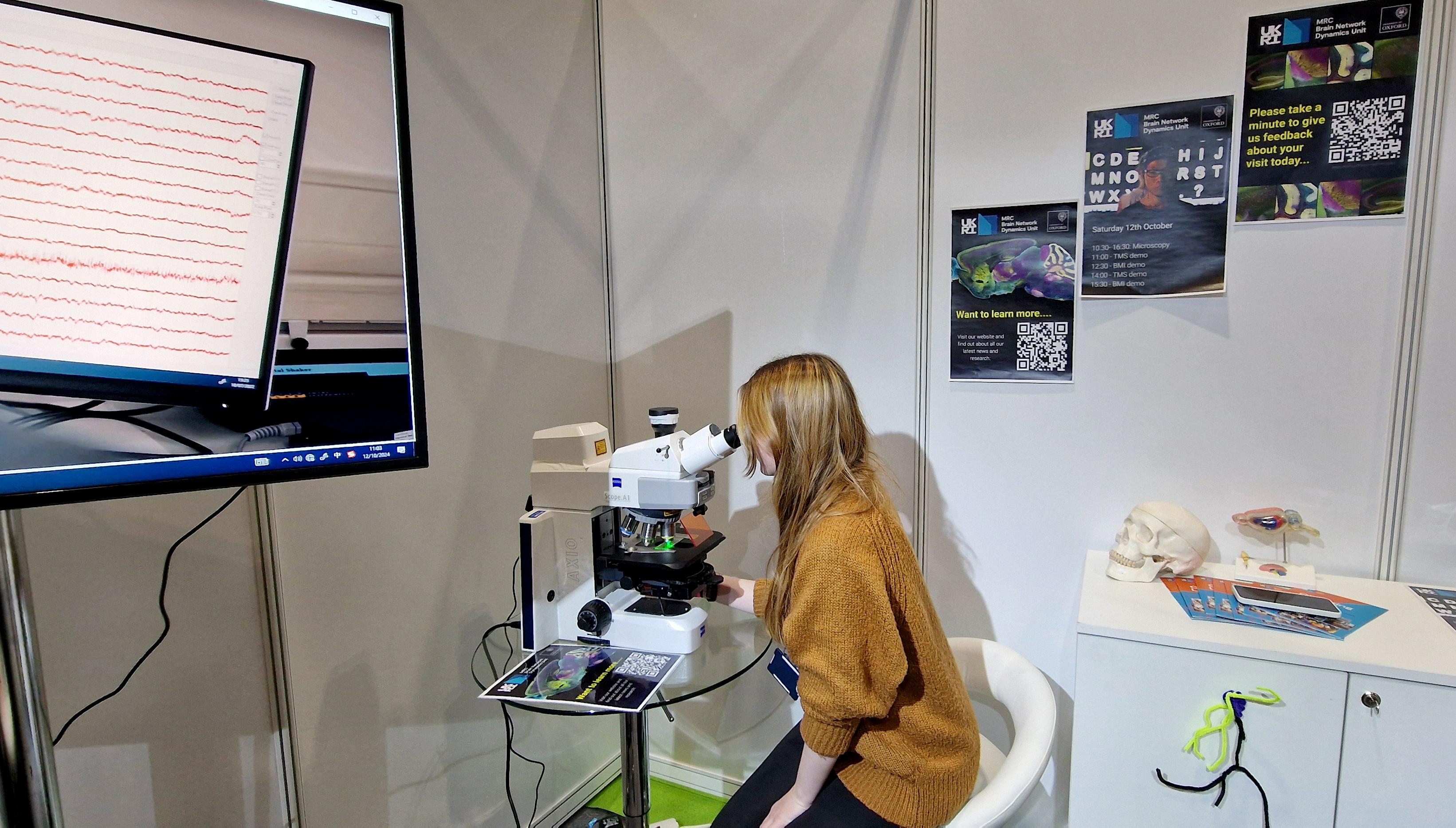
Unit Research Assistant Jennifer Blackmore sets up the fluorescence microscope ready for visitors to the MRC BNDU stand.
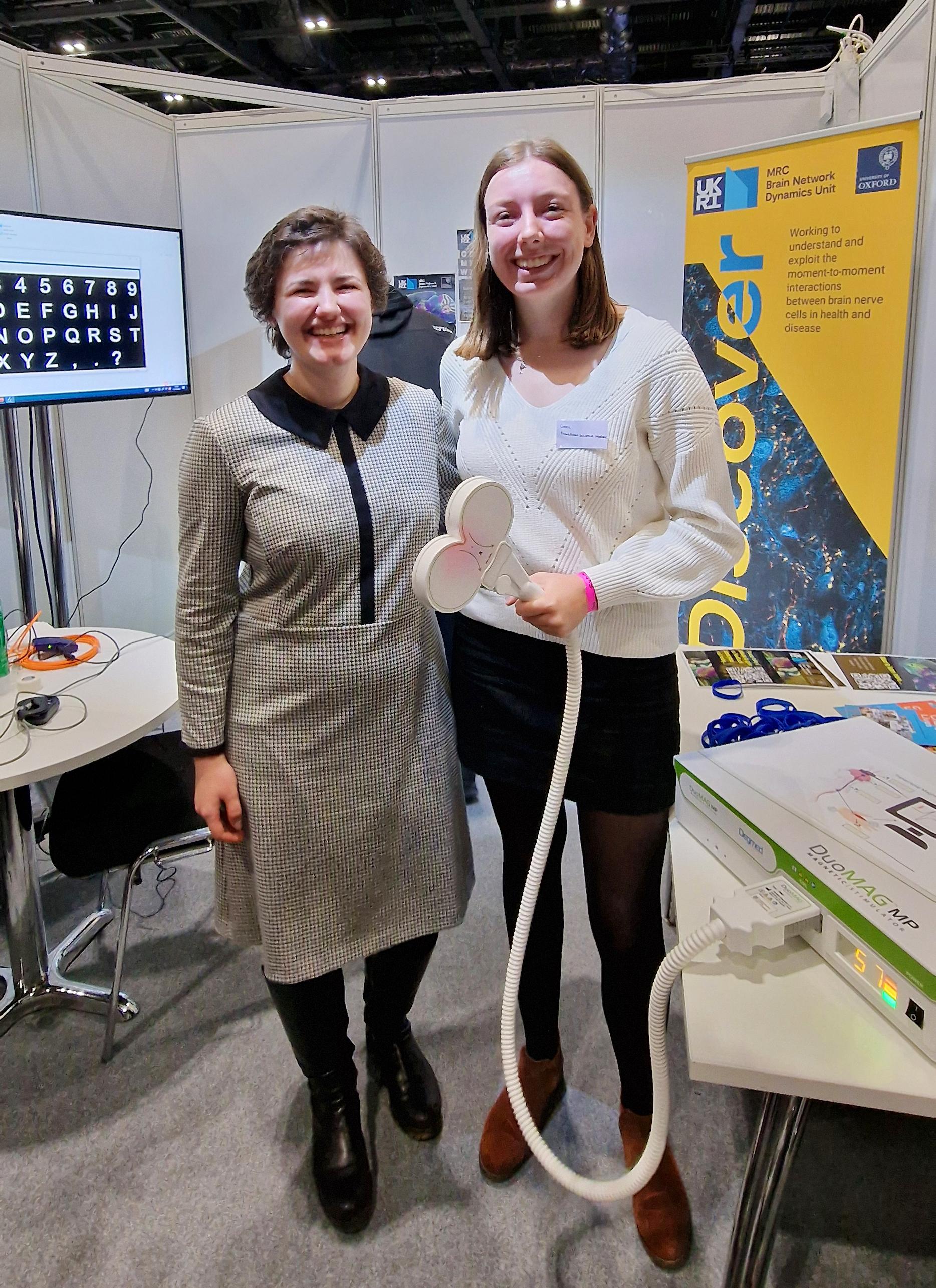
Ready to be stimulating! Ioana Grigoras and Grace Kimber are all set to talk demonstrate and discuss TMS on Day 2 of New Scientist Live 2024.
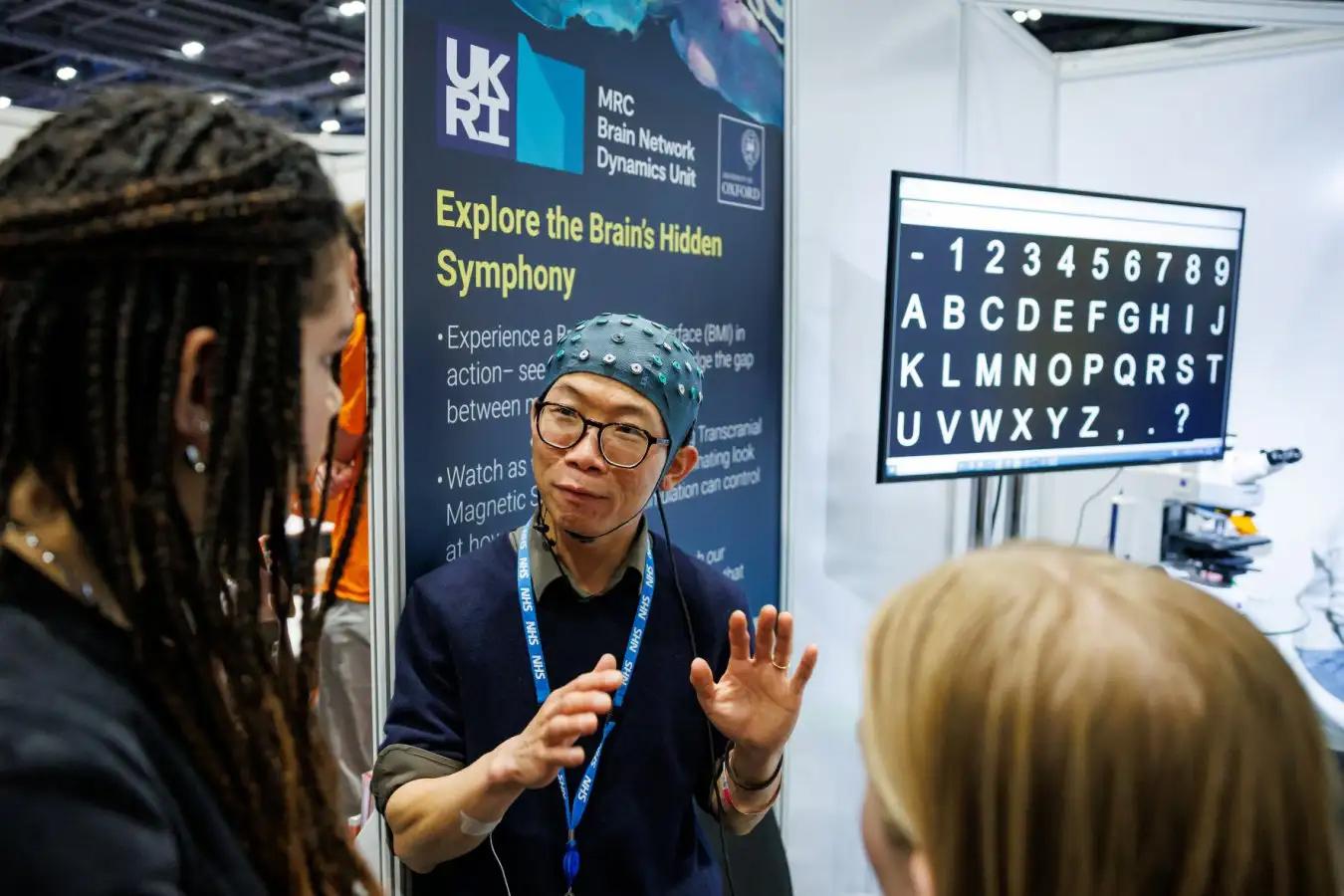
Unit researcher Shenghong He demonstrates a brain machine interface (BMI) and discusses its potential in treatments for neurological disorders. Image credit: https://www.alistairveryard.com/
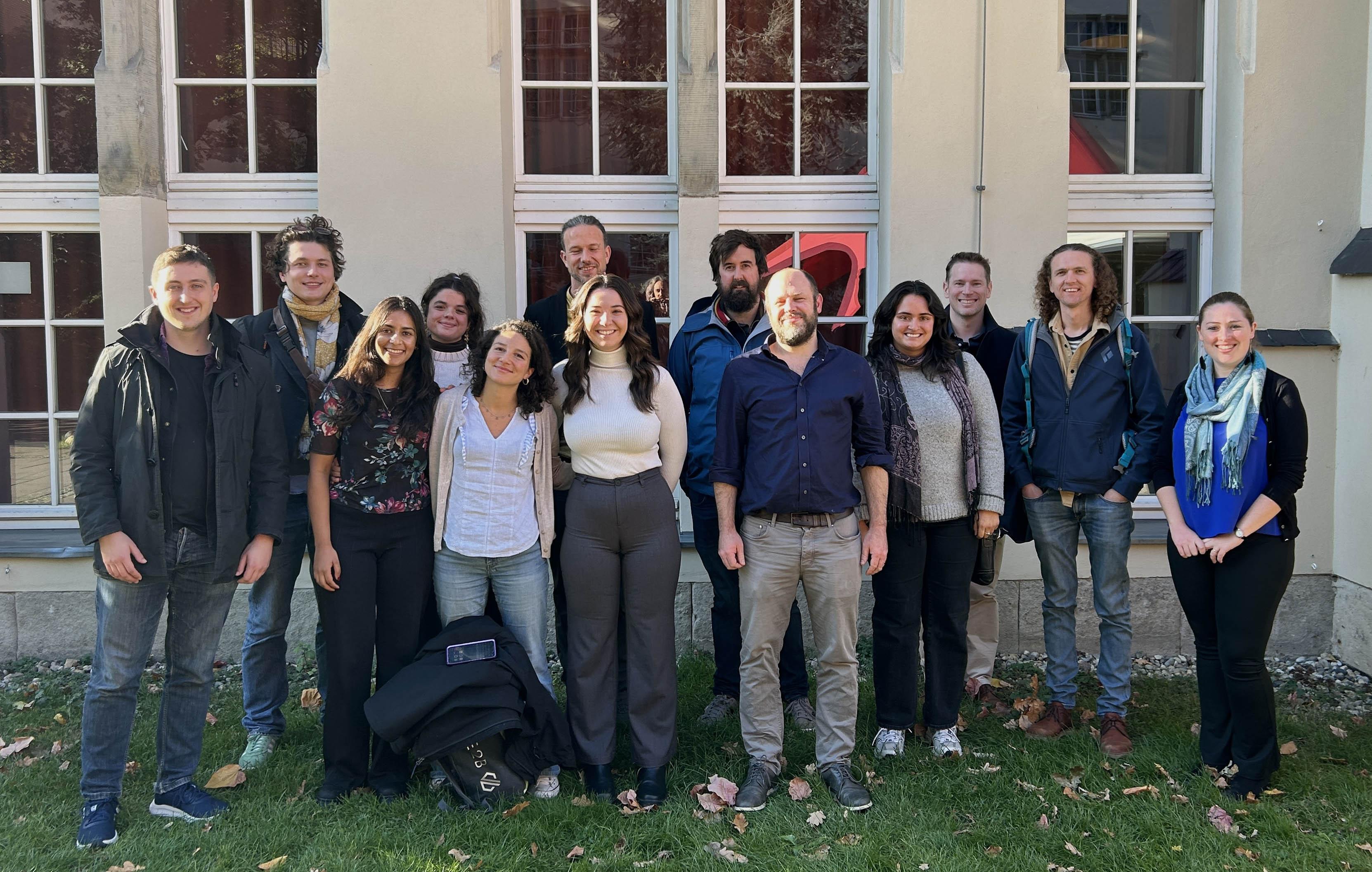
Members of the Sharott group recently travelled to Berlin to participate in the International Electrophysiology Skills Days Meeting supported by Professor Andrew Sharott's Einstein Fellowship. The meeting brought together researchers from the Einstein Berlin-Oxford Fellowship, ReTune, and AdaptPD consortia across the field of electrophysiology.
Andrew delivered a keynote lecture on translational development of closed-loop brain stimulation approaches which explored the group’s pioneering research in brain circuit mechanisms and deep brain stimulation interventions. Several members of the Sharott group delivered talks on clinical and pre-clinical electrophysiology techniques and data analysis methods and participated in a vibrant poster session.
Sharott group members commented that the meeting ‘provided a dynamic platform for sharing knowledge on key electrophysiology techniques’ and that it ‘facilitated discussions on the latest developments in the field of electrophysiology’.
Overall, the meeting promoted international collaboration and strongly showcased the cutting-edge electrophysiology research being undertaken within the Sharott group at the BNDU.
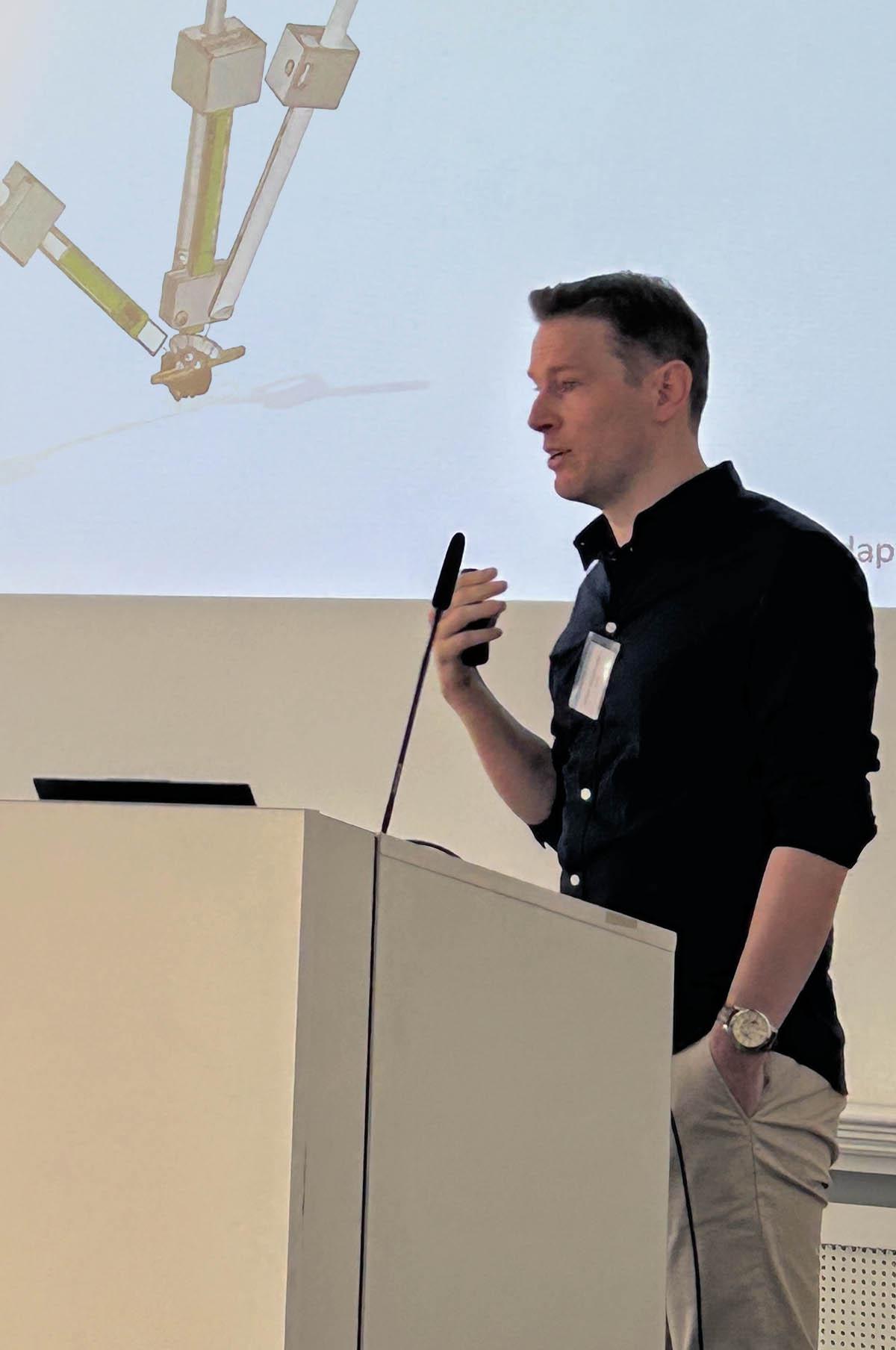
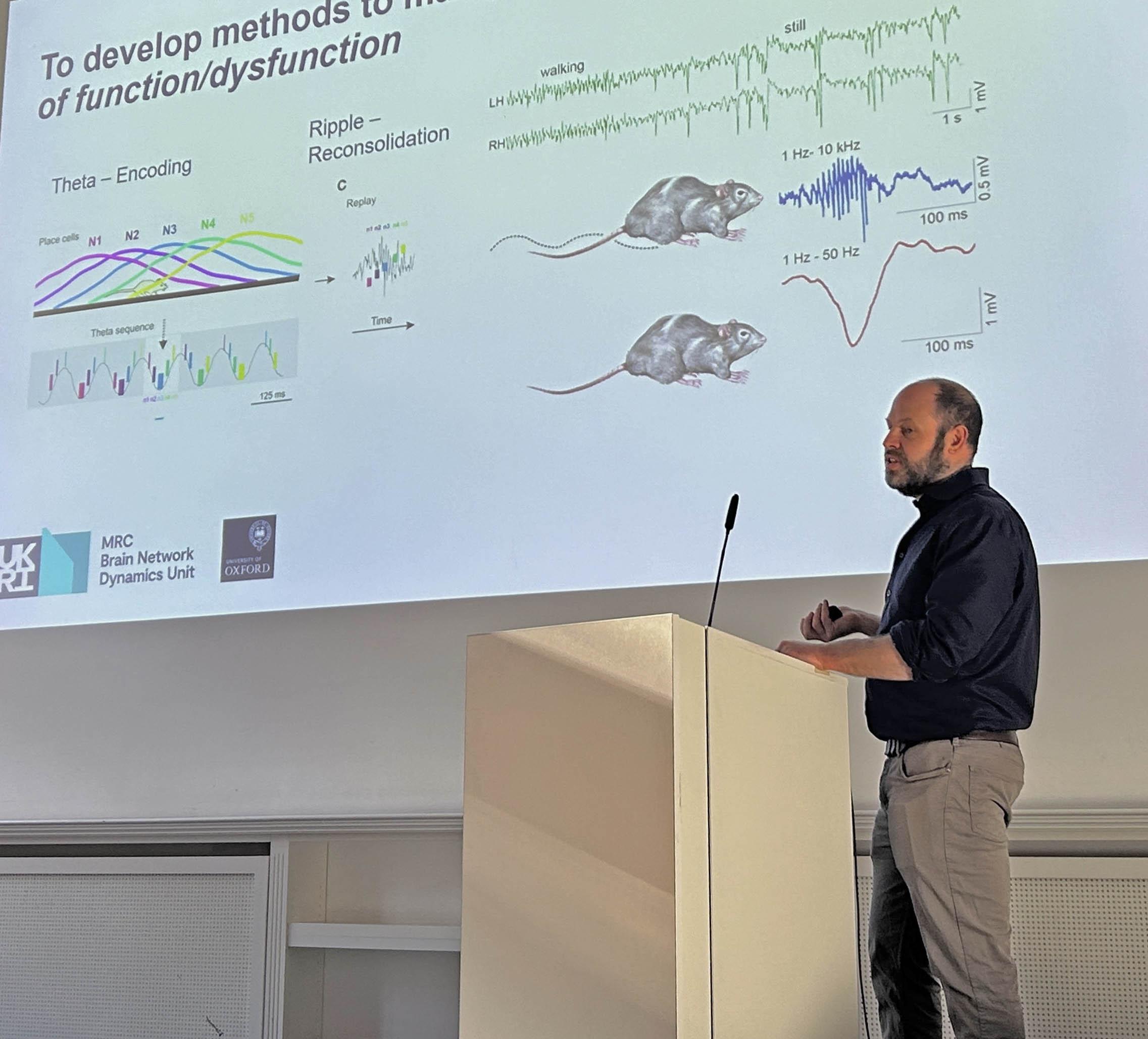
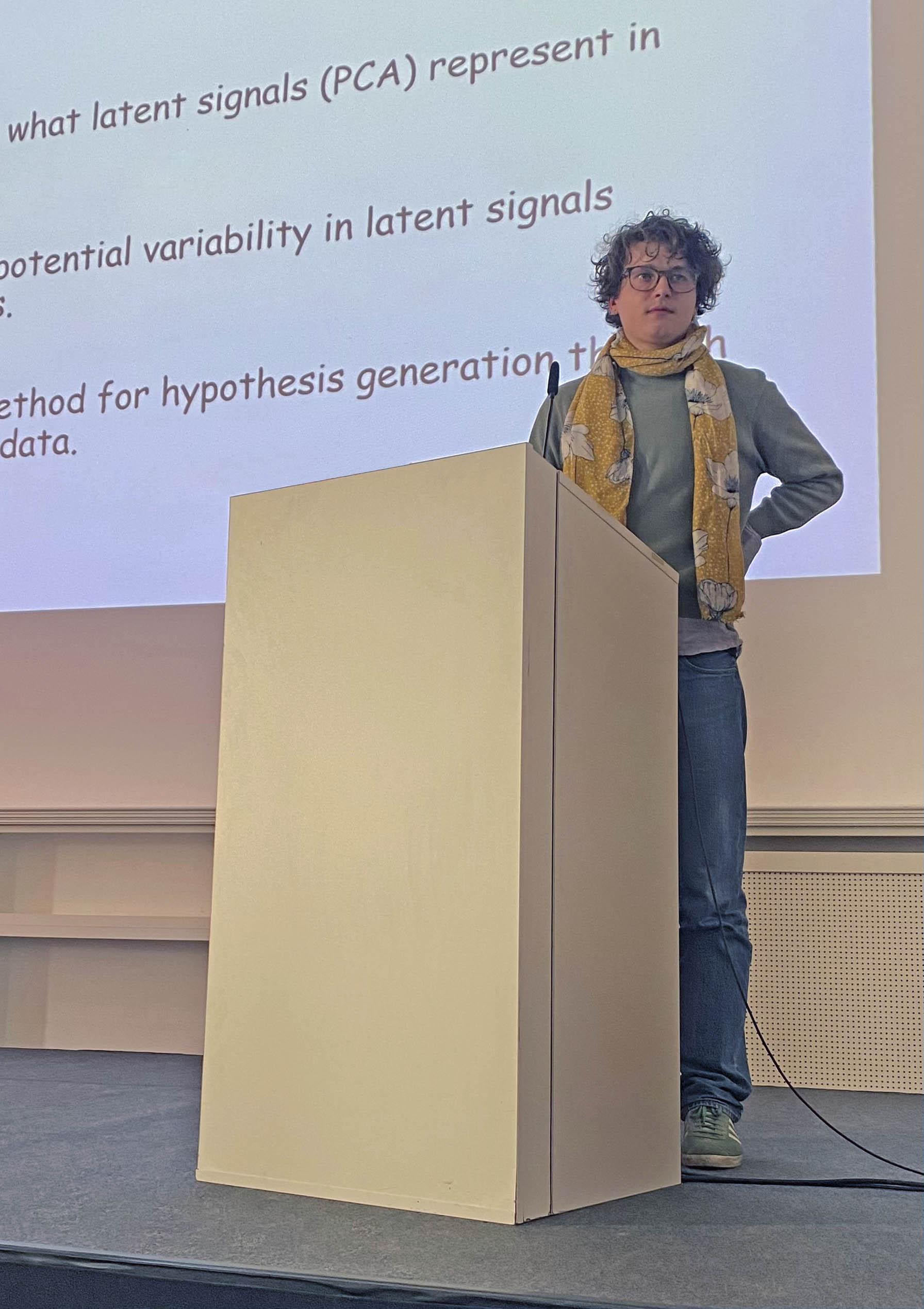
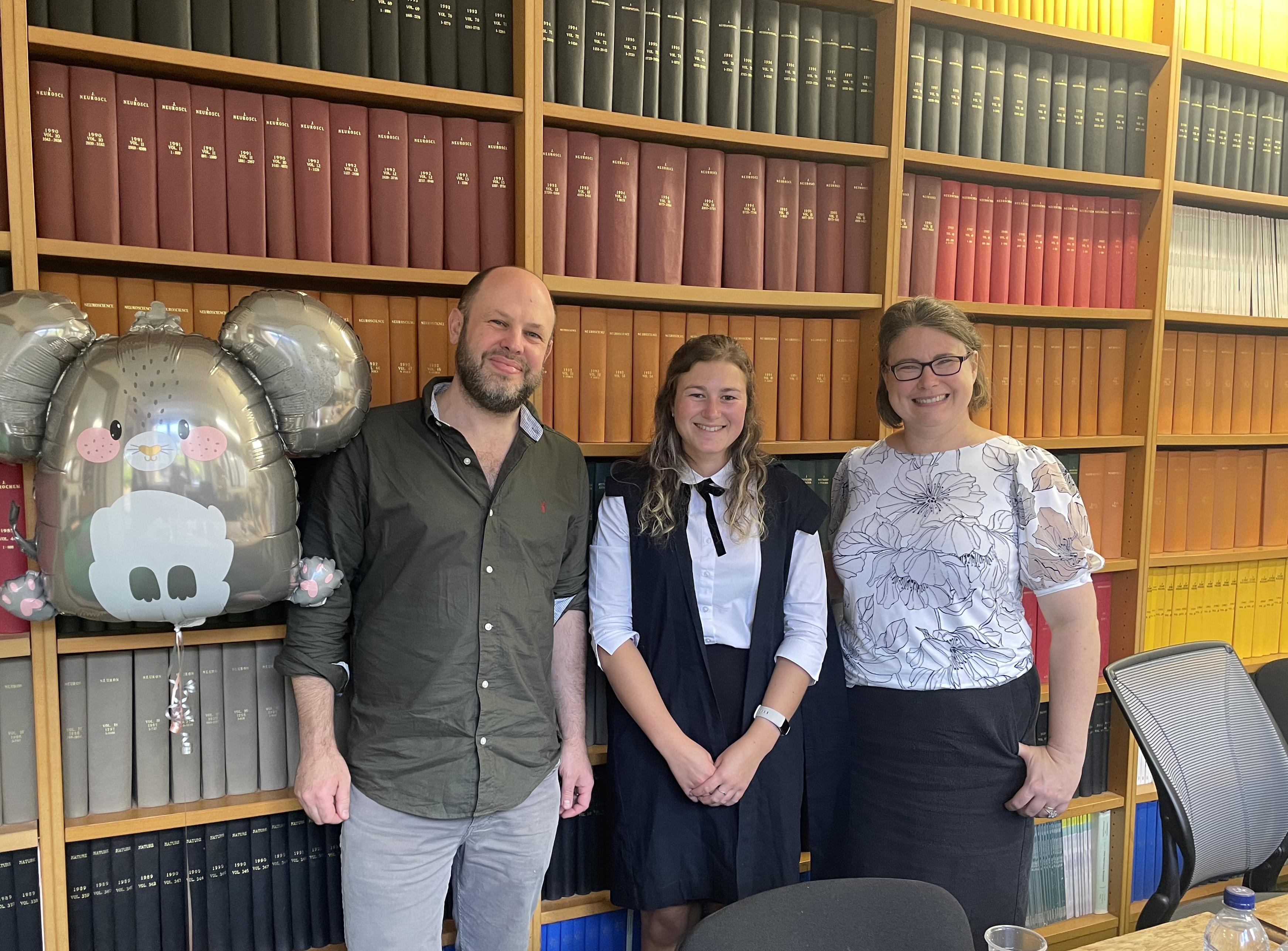
After the viva voce: A happy D.Phil. candidate with proud supervisors.
Our congratulations go to Unit D.Phil. student Jessica Myatt for successfully defending her doctoral thesis, entitled “Enhancing motor cortical theta and gamma oscillations using closed-loop phase-dependent optogenetic stimulation”, in her viva voce examination on 17th September 2024.
Jessica’s viva examiners were Dr. Ines Violante (King’s College London) and Associate Professor Helen Barron (University of Oxford).
Jessica was supervised in the Unit by Professor Andrew Sharott and Professor Charlotte Stagg.
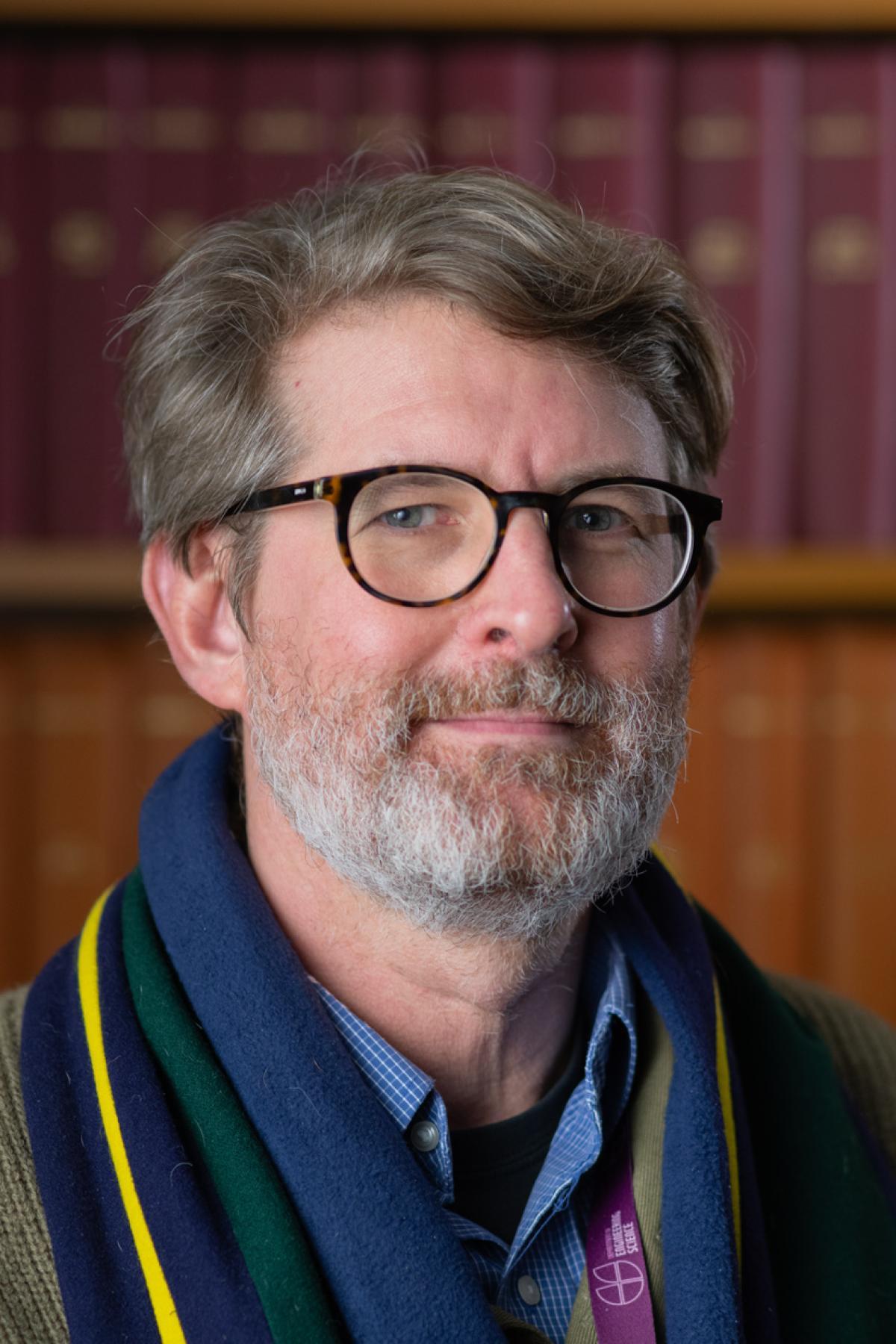
Professor Tim Denison FREng
Many congratulations to Unit Group Leader Professor Tim Denison on the announcement today of his election to the Fellowship of the Royal Academy of Engineering.
The Royal Academy of Engineering is an independent body in the UK, seeking to harness the power of engineering to build a sustainable society and an inclusive economy that works for everyone. Fellowship of the Academy is based on exceptional contributions to the field of engineering and technology. A small number of new Fellows are elected each year.
Tim commented “This recognition reflects the efforts of a multidisciplinary team of engineers, scientists, clinicians and entrepreneurs. I would particularly like to thank the research participants who have volunteered over the years, without whom the new frontiers of treatments could not be explored.”
Unit Director Professor Peter Magill commented “We are all thrilled for Tim. This honour is richly deserved. Tim is a true pioneer of biomedical engineering. His state-of-the-art tools have not only advanced neuroscience discovery research but also led to tangible benefits to human health and wellbeing.”
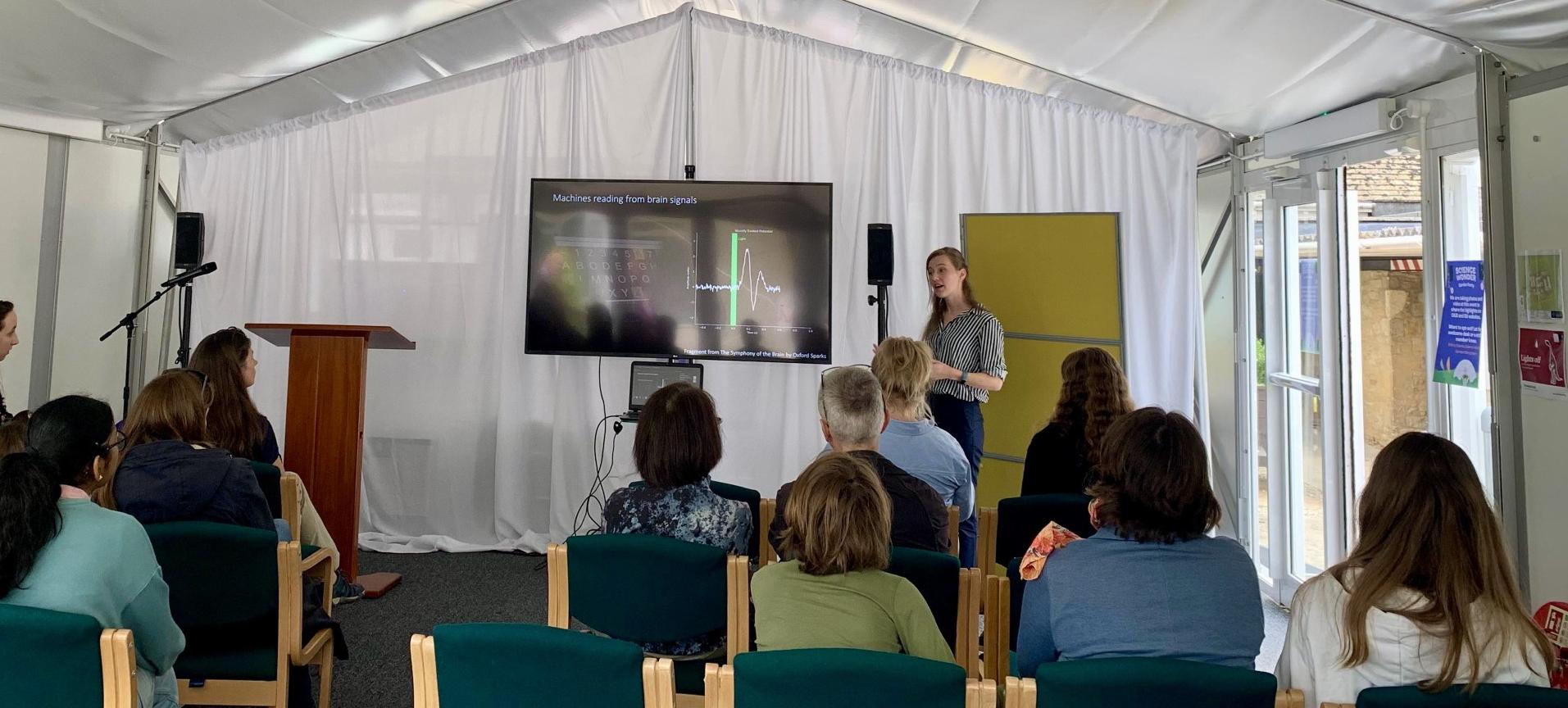
On 13th July, Unit researchers Demi Brizee and Joram van Rheede shared some of the MRC BNDU’s innovative science with the public attending the Science Wonder Garden Party at the University of Oxford Begbroke Science Park. The Garden Party aimed to engage people of all ages with the amazing science taking place around the University of Oxford and beyond.
Brain Waves and Brain Health
Demi, a PhD student at the Unit, took part in the Oxford Sparks Live session and spoke about brain waves and their role in brain function. Demi’s presentation centred on the Unit’s public outreach video "The Symphony of the Brain”, created in partnership with Oxford Sparks, and showcased how brain waves can be recorded and used to understand the brain in health as well as to potentially treat conditions affecting the brain. Demi’s talk was part of a session that featured five other Oxford Sparks videos and researchers, followed by a 'meet the scientist' Q&A session that helped the audience directly engage with the researchers. Demi's talk clearly impressed the audience, with one member of the public enthusing, “This was truly amazing!”
Spotlight on Biomedical Engineering
Joram, a Senior Postdoctoral Neuroscientist at the Unit, took part in the 'Spotlight on Engineering' public engagement talks organised by Oxford’s Department of Engineering Science. Joram’s presentation was focused on the interaction between sleep and deep brain stimulation therapy, highlighting the Unit’s collaborative efforts in this area of research. During his workshop, Joram made good use of creative metaphors to explain his science, encouraging the audience to actively engage with the ideas underpinning his work.
Demi and Joram particularly enjoyed the insightful questions from the audience. The family-friendly environment, live music, food stalls, and good weather all helped to make this a highly successful outreach event.
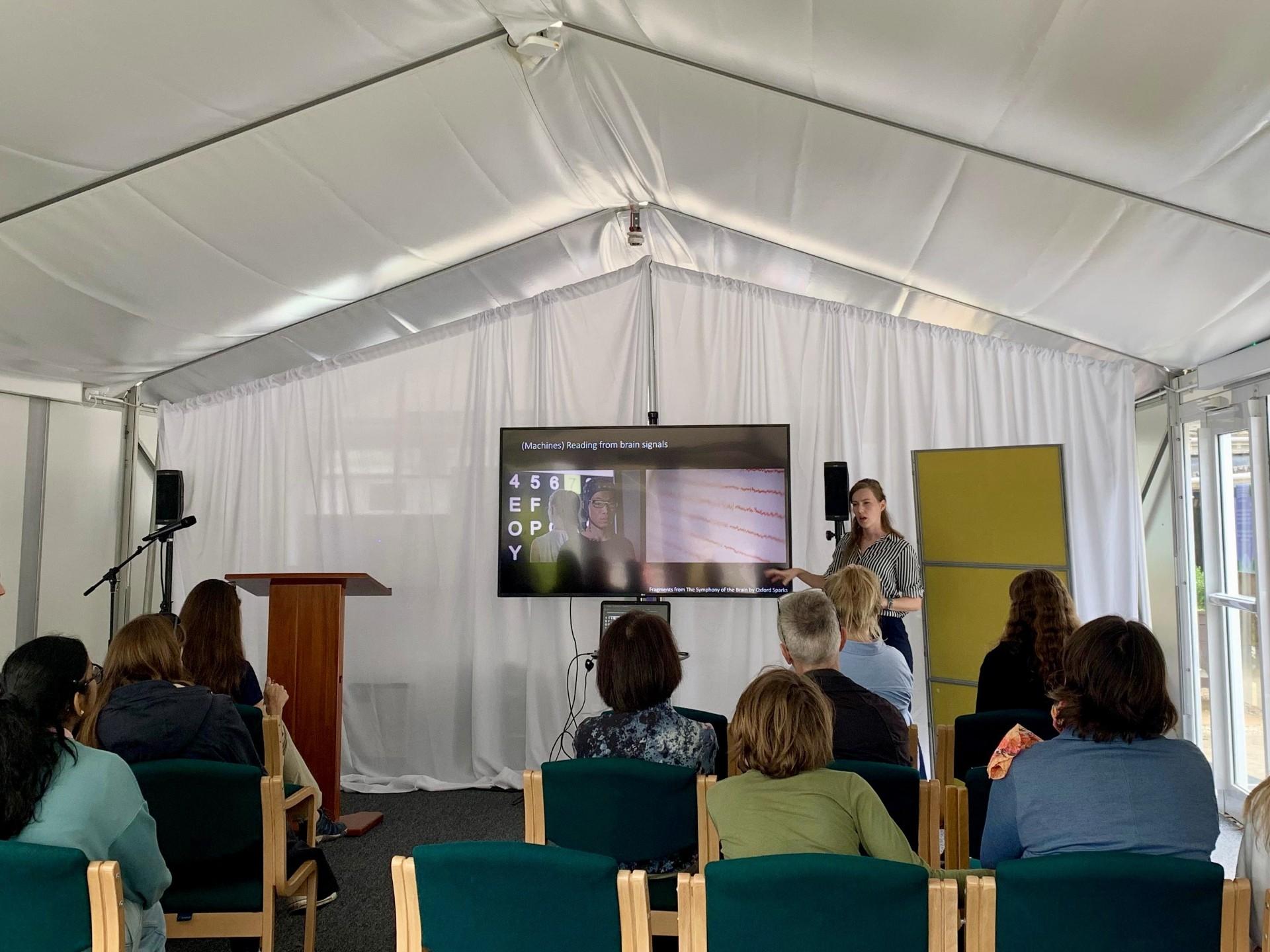
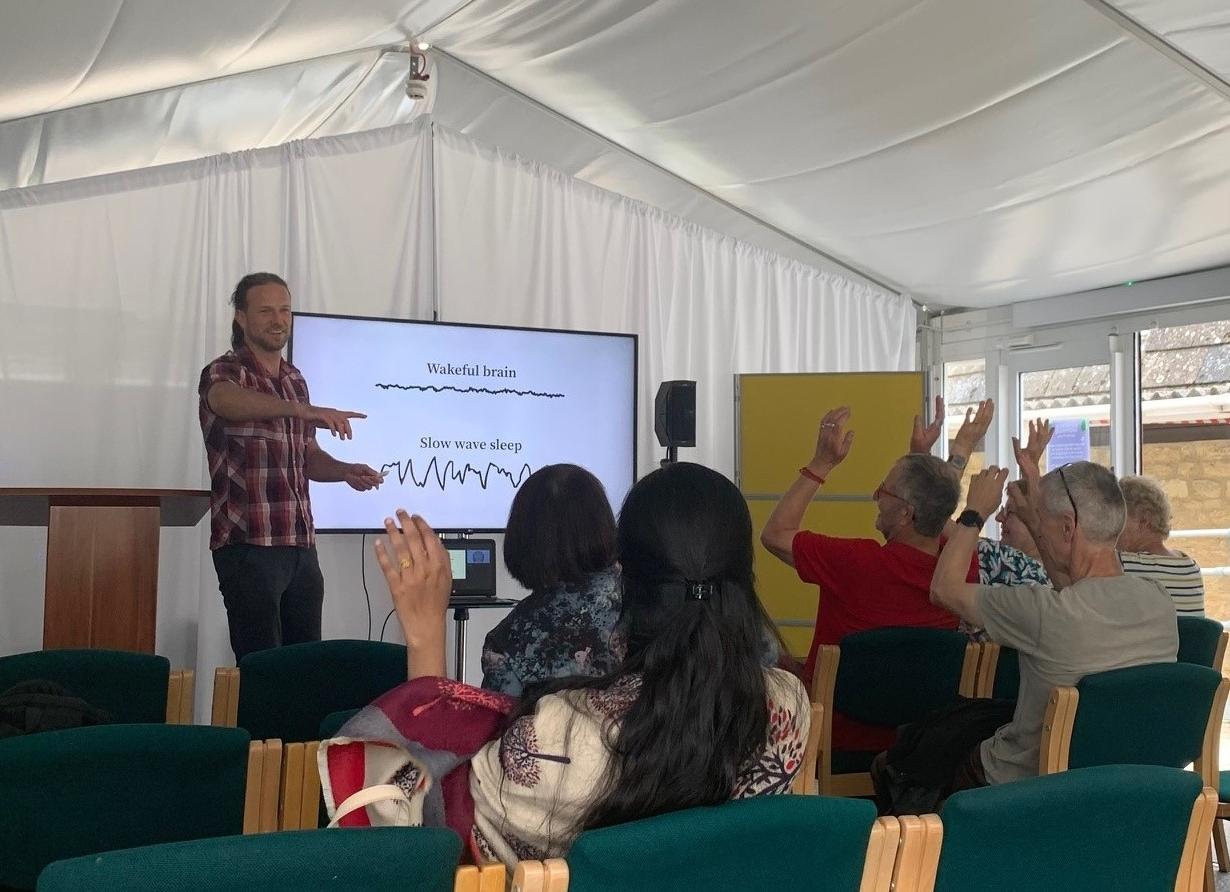

On 9th July, we met again with members of our Patient and Public Advisory Group to canvass their views on the Unit’s research direction and plans. The Advisory Group is made up of people with lived experience, as patients and carers, of diverse neurological and psychiatric conditions. The meeting started with Unit Director Professor Peter Magill giving a summary of a 15-year collective research vision. This was followed by a lively discussion and Q & A session with the Group, moderated by the Unit’s Patient and Public Involvement Lead Associate Professor Melanie Fleming. Conversations were centred around a range of topics, from patient needs and concerns to research priorities and on to emerging neurotechnology options for therapy.
Professor Magill commented, “Proactively involving the public helps ensure that our research tackles the most important healthcare challenges in the right ways to give greatest impact. The conversations with our Advisory Group were constructive and decisive, and their insights and steer were once again really helpful.”
Professor Fleming added, “This second meeting was another valuable opportunity to reflect on some key issues, and we look forward to working with our public partners again soon.”
